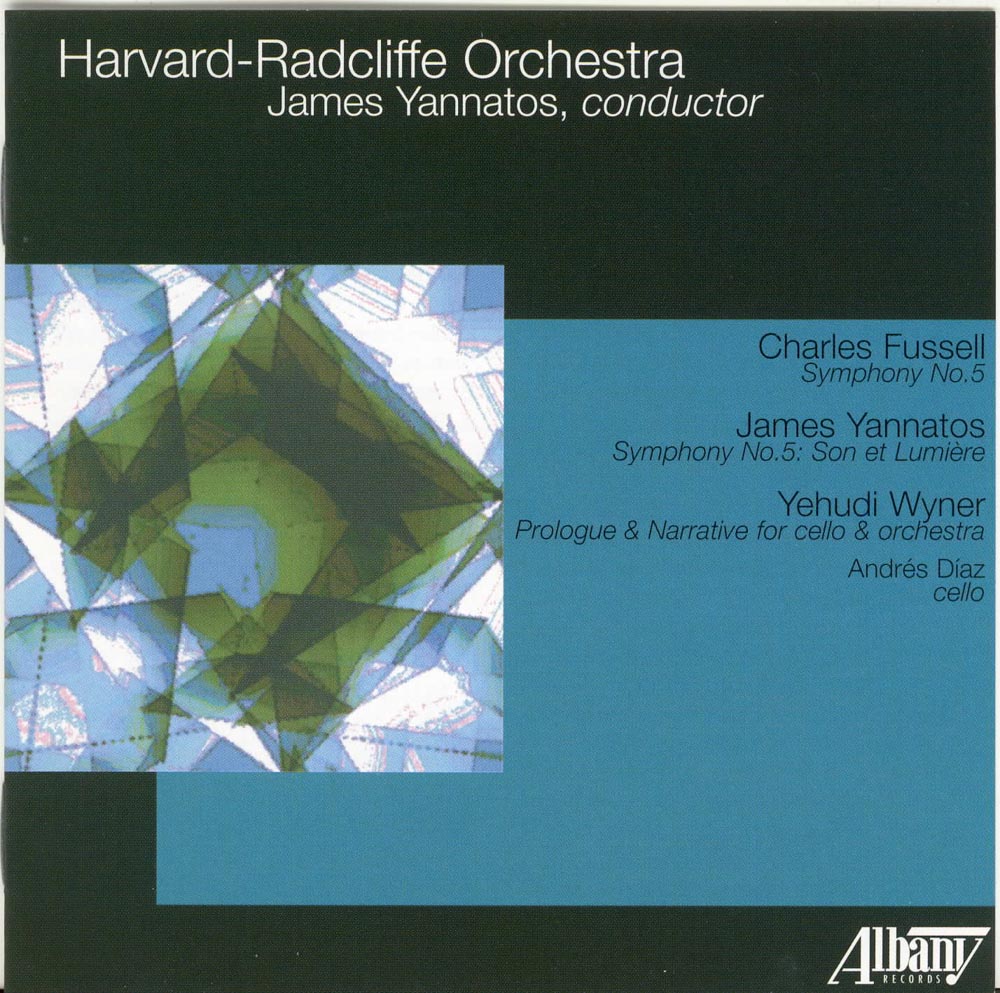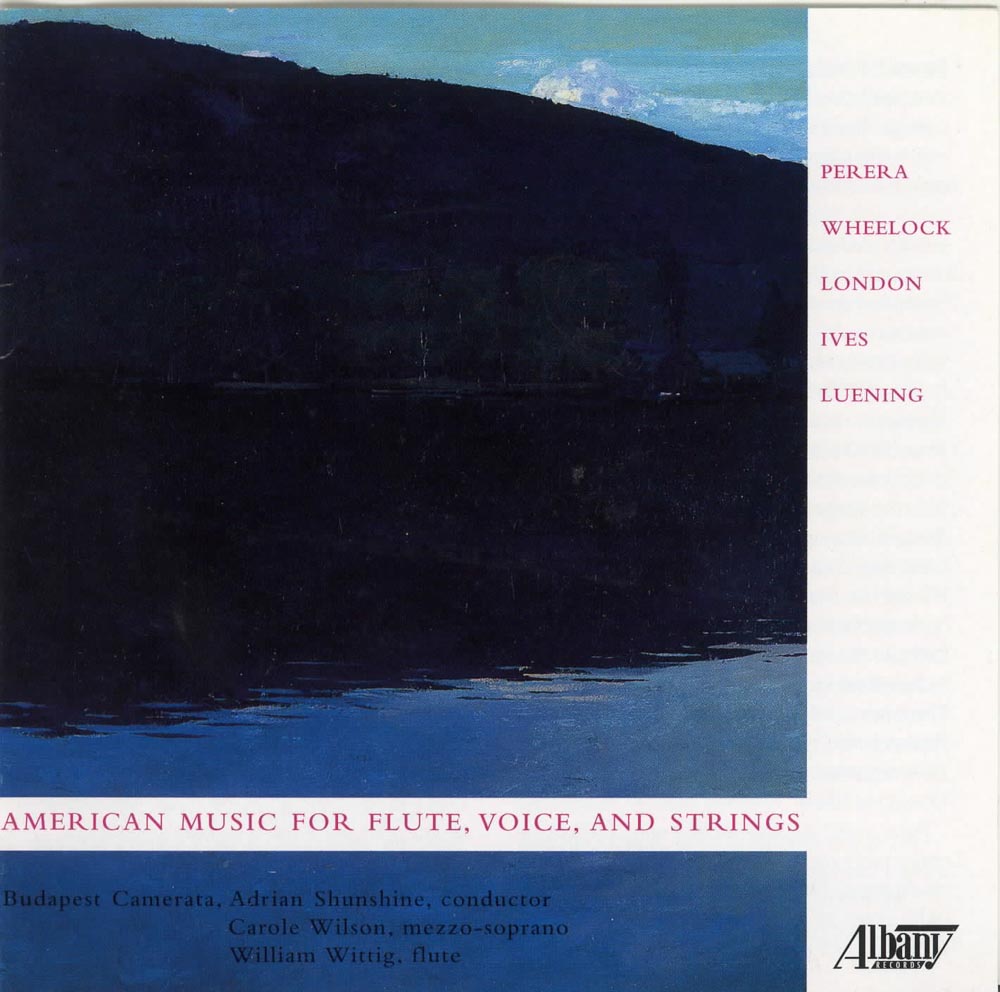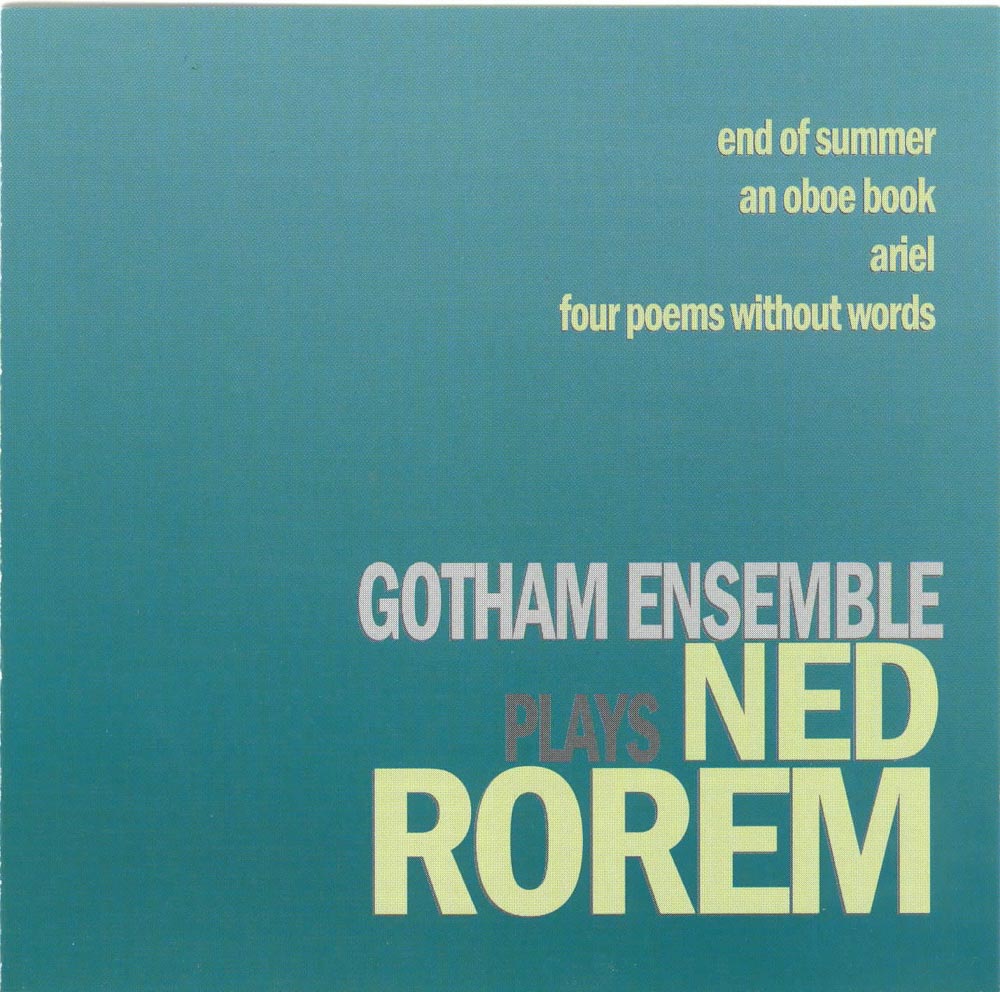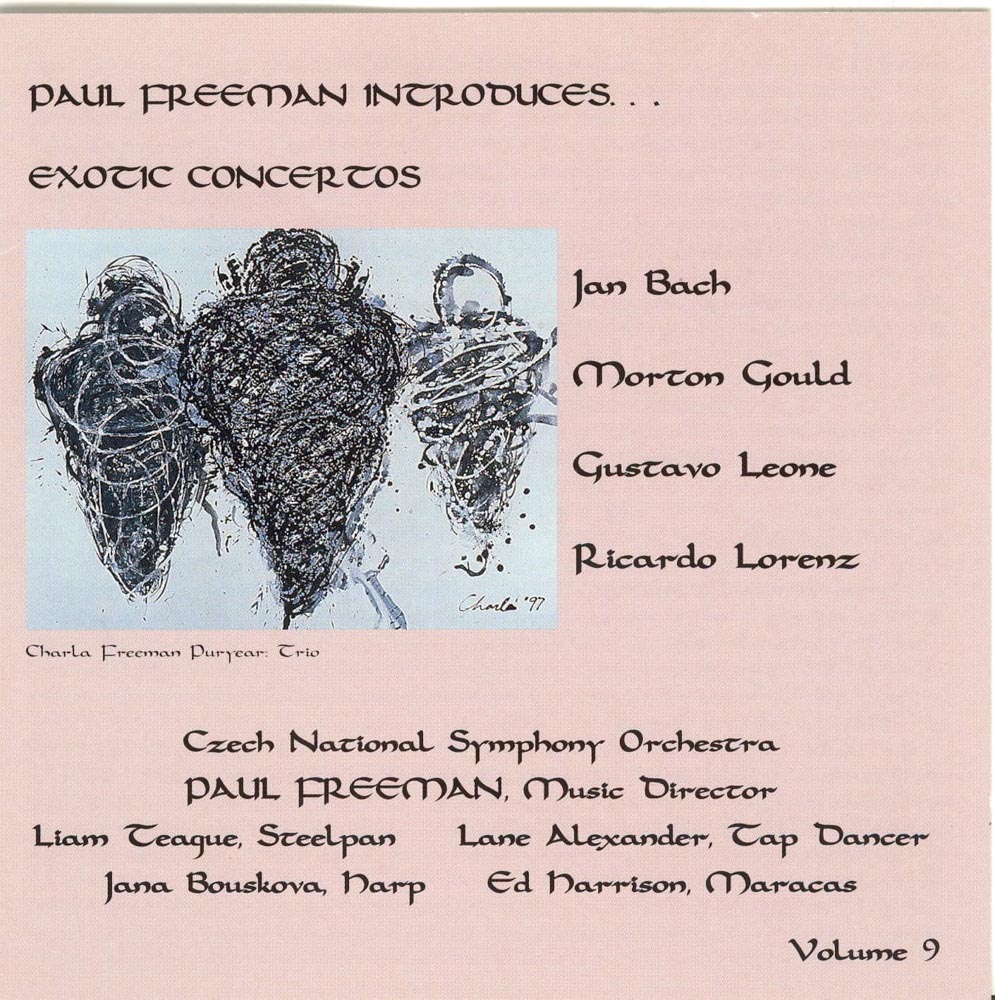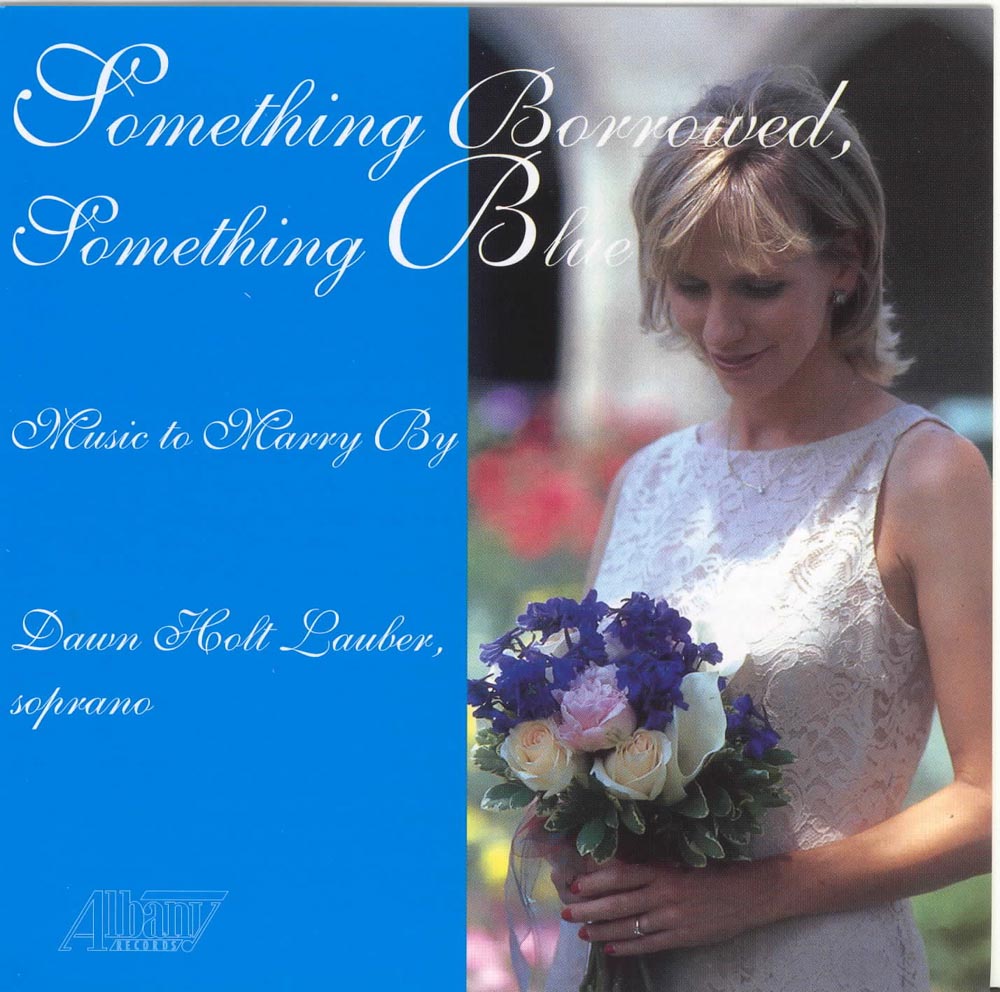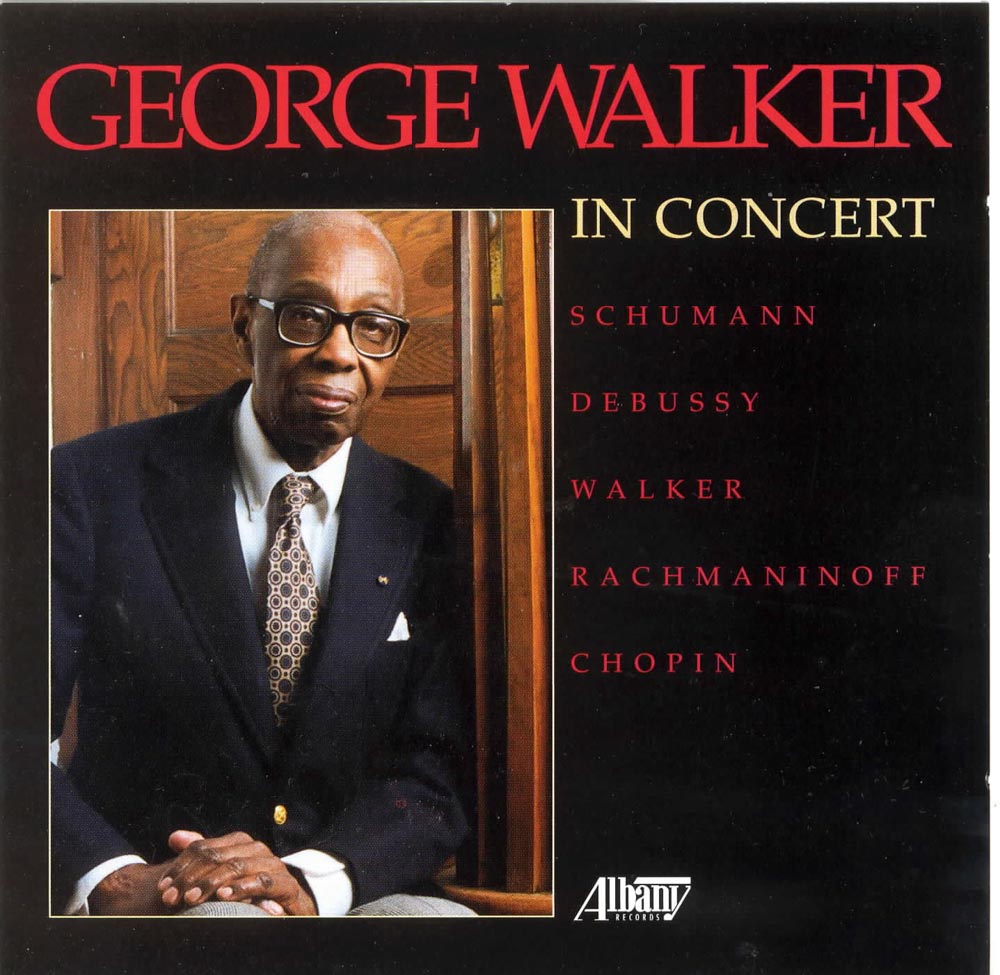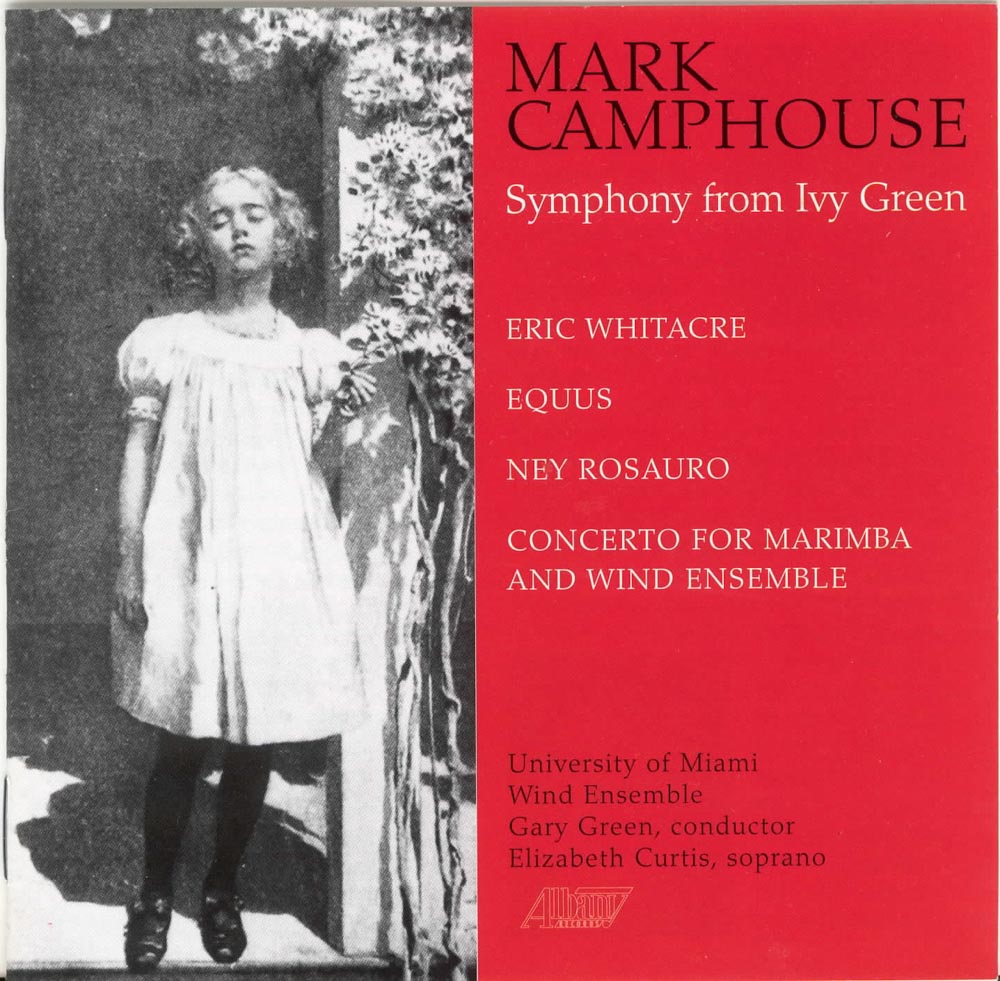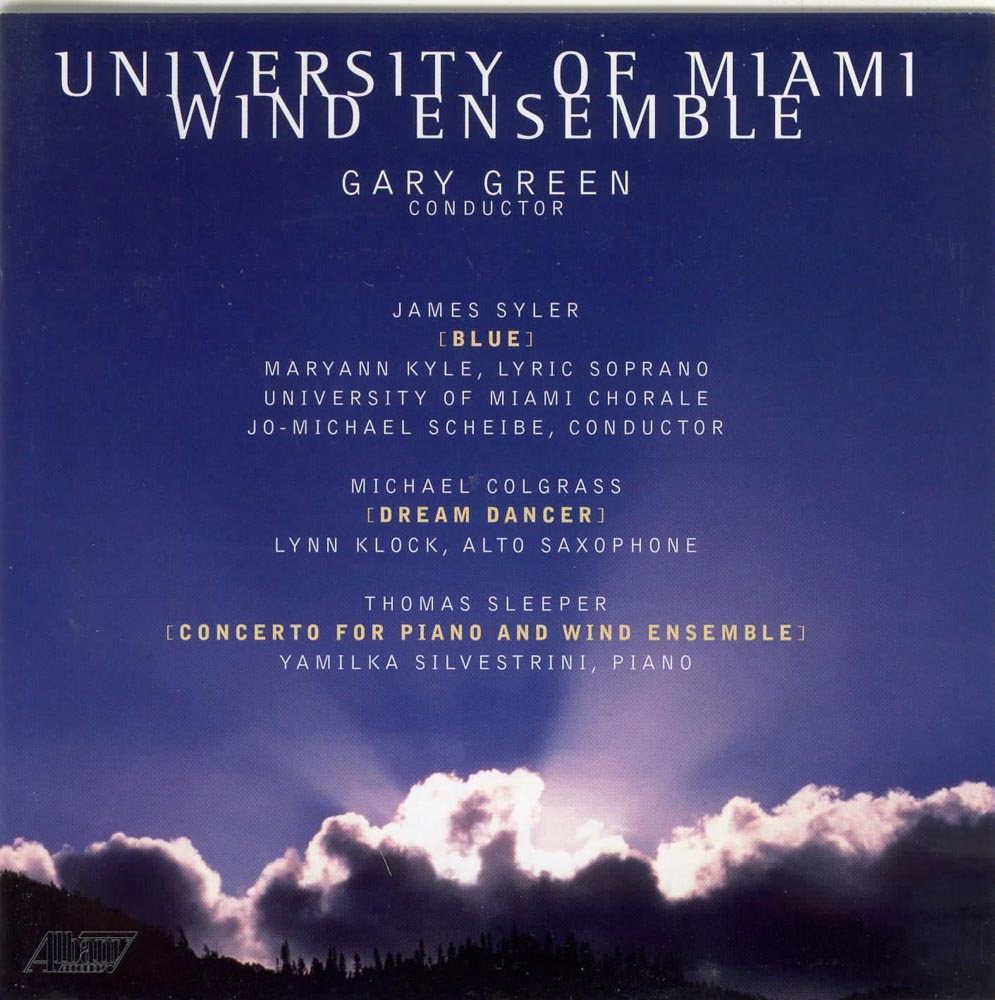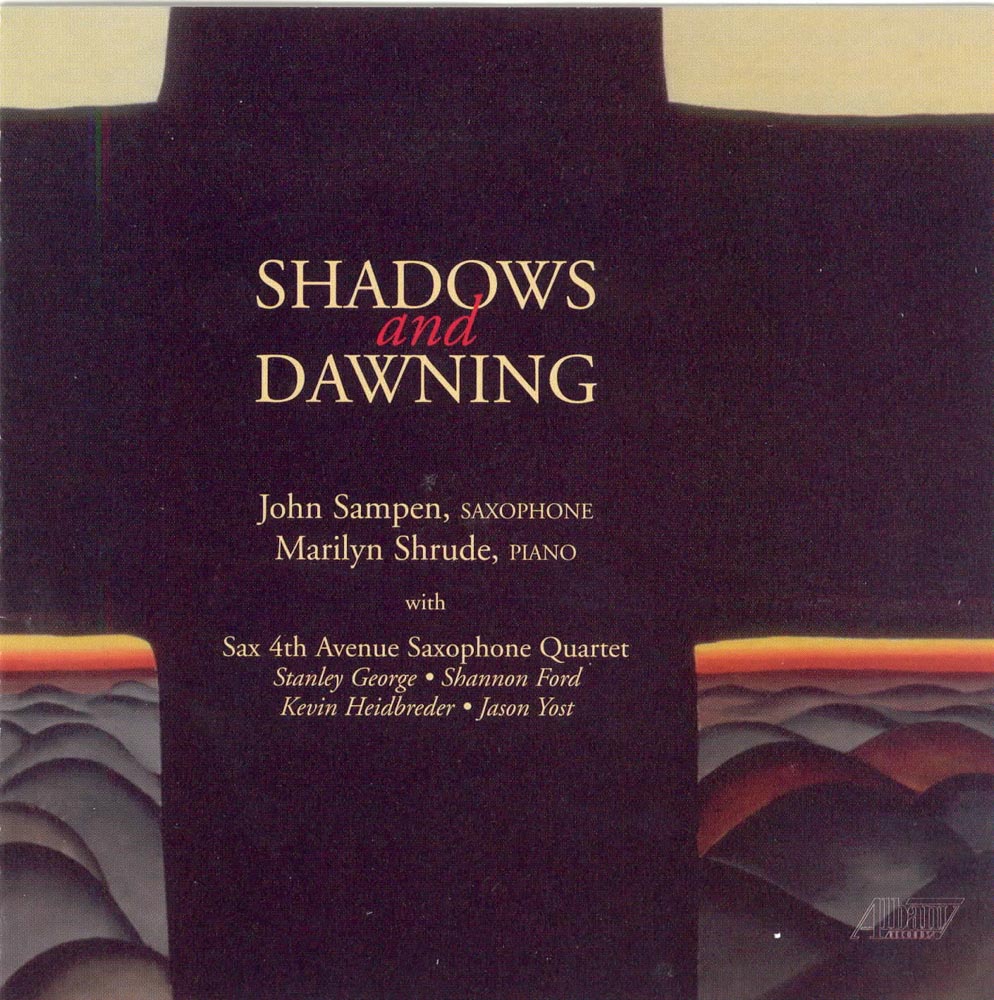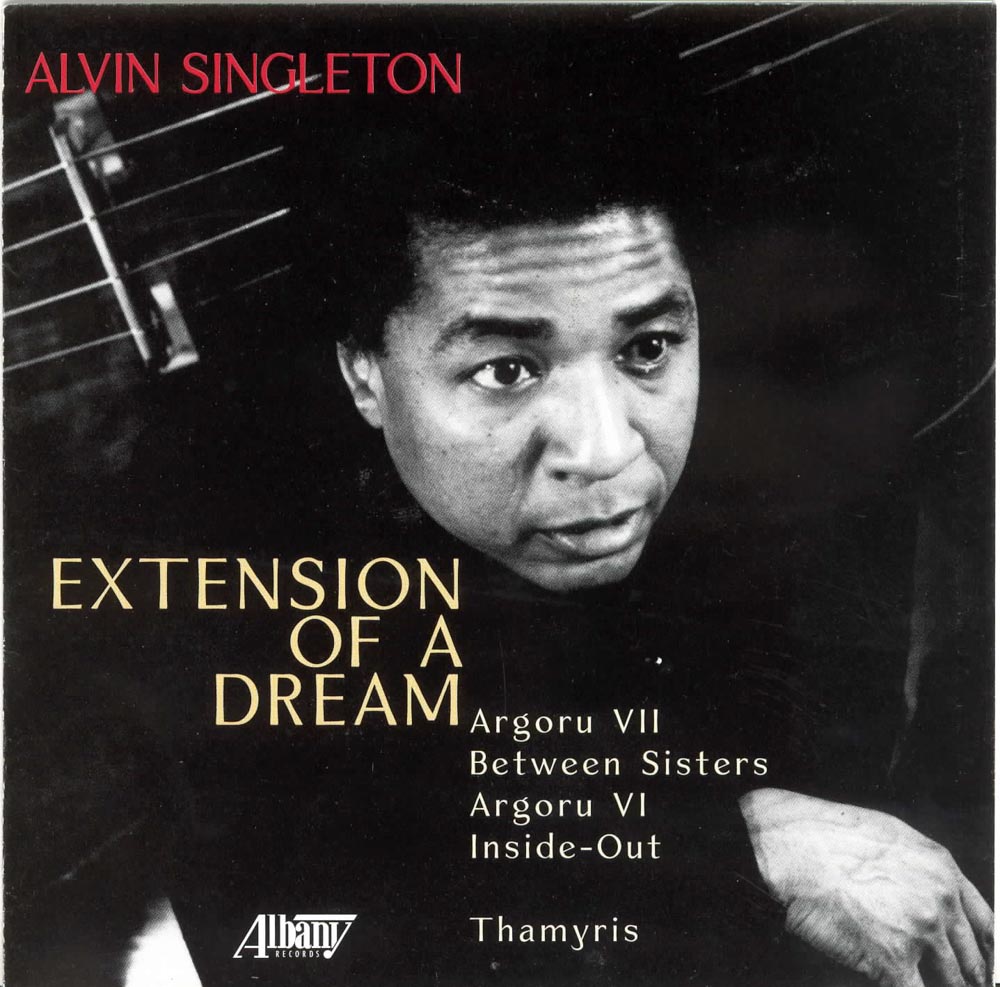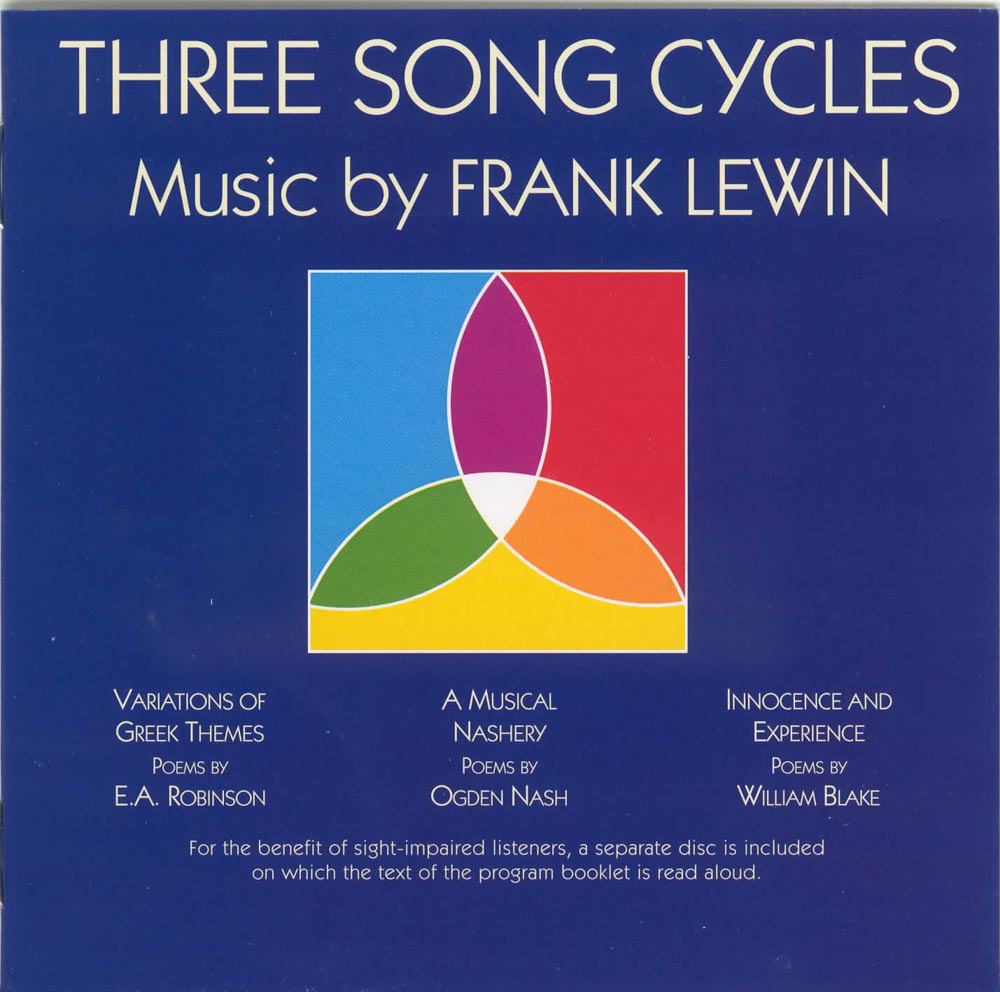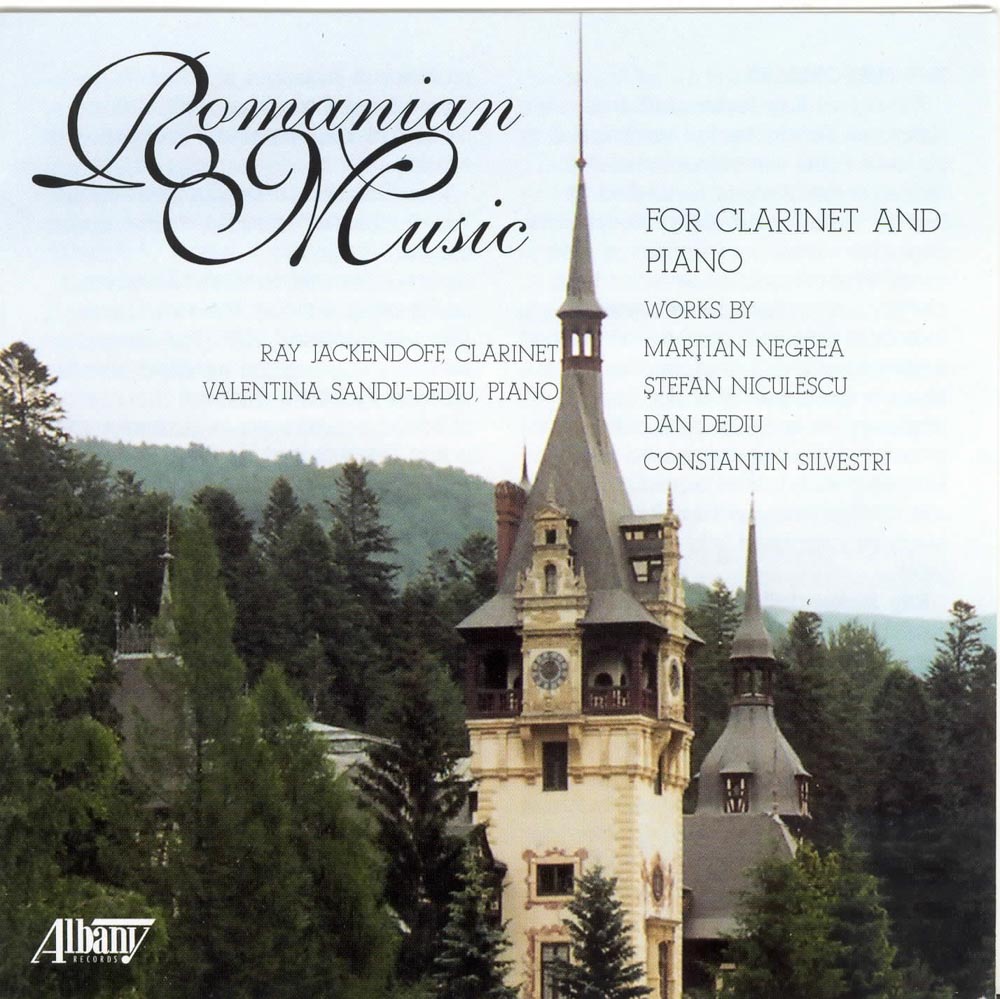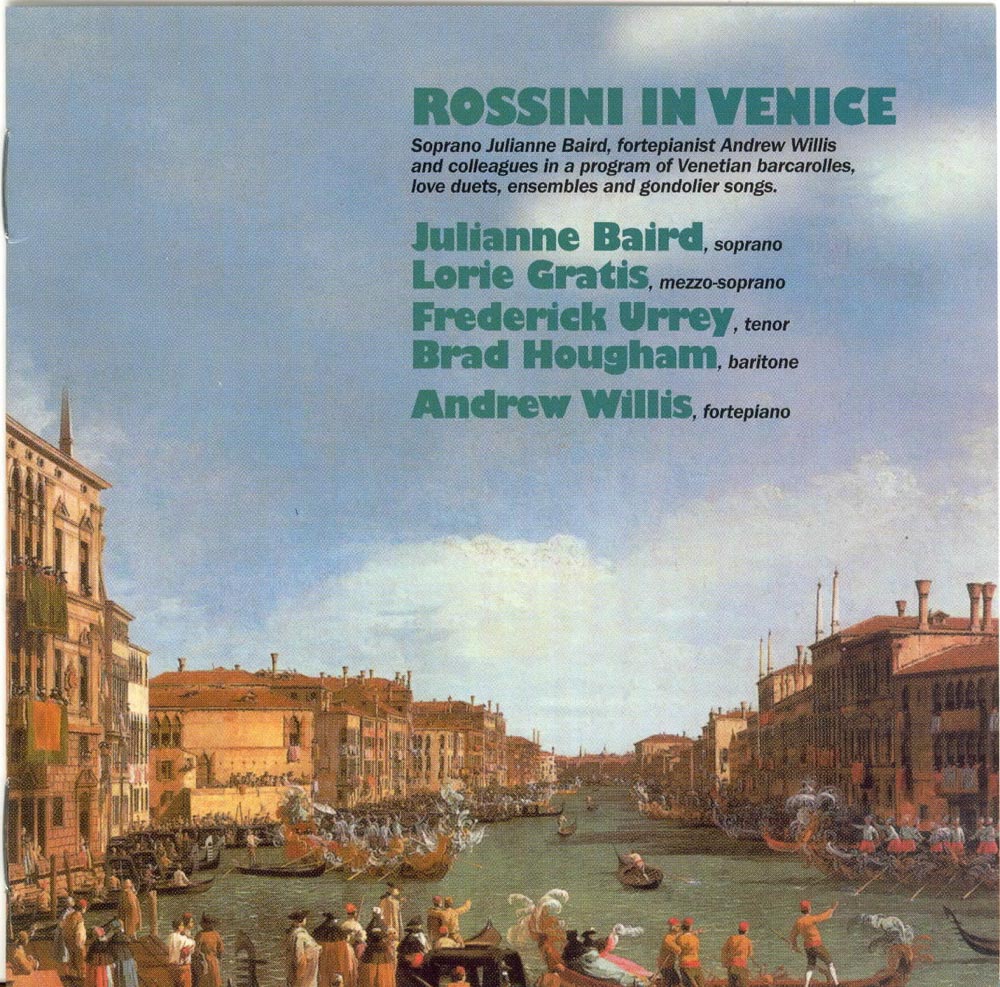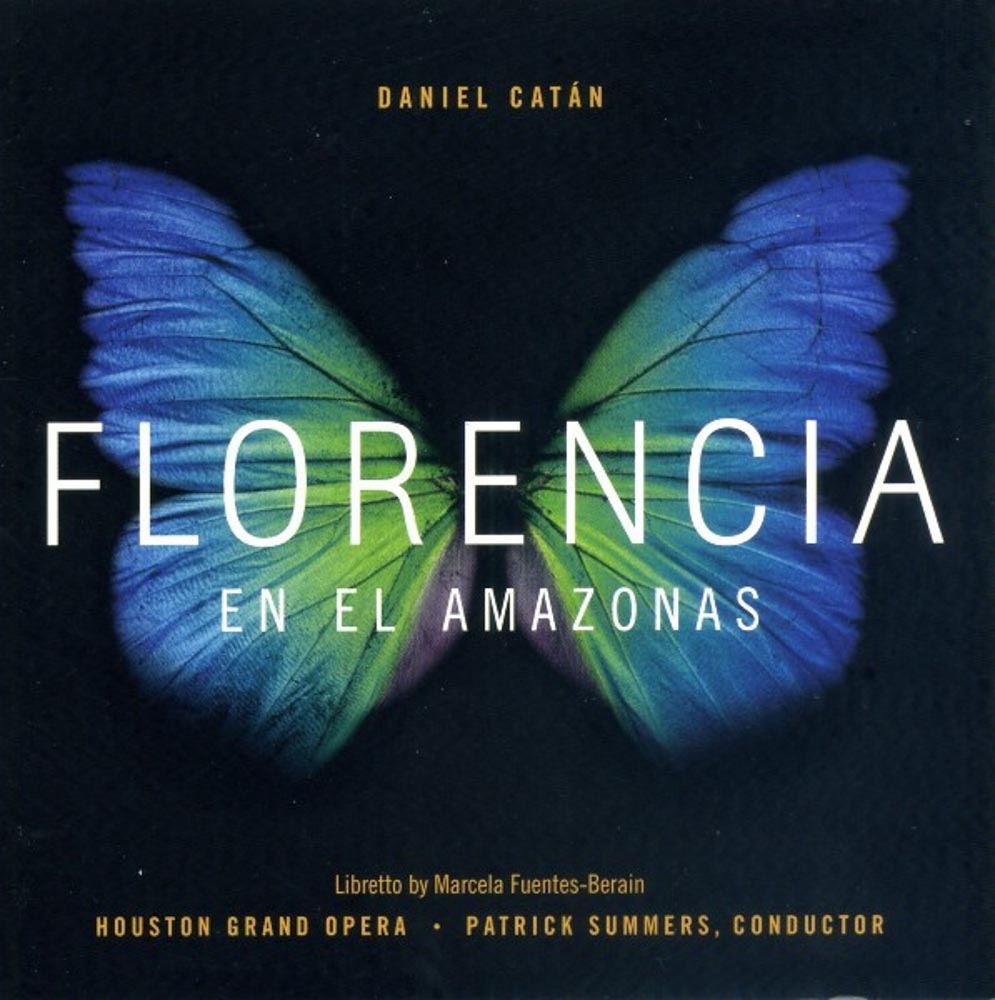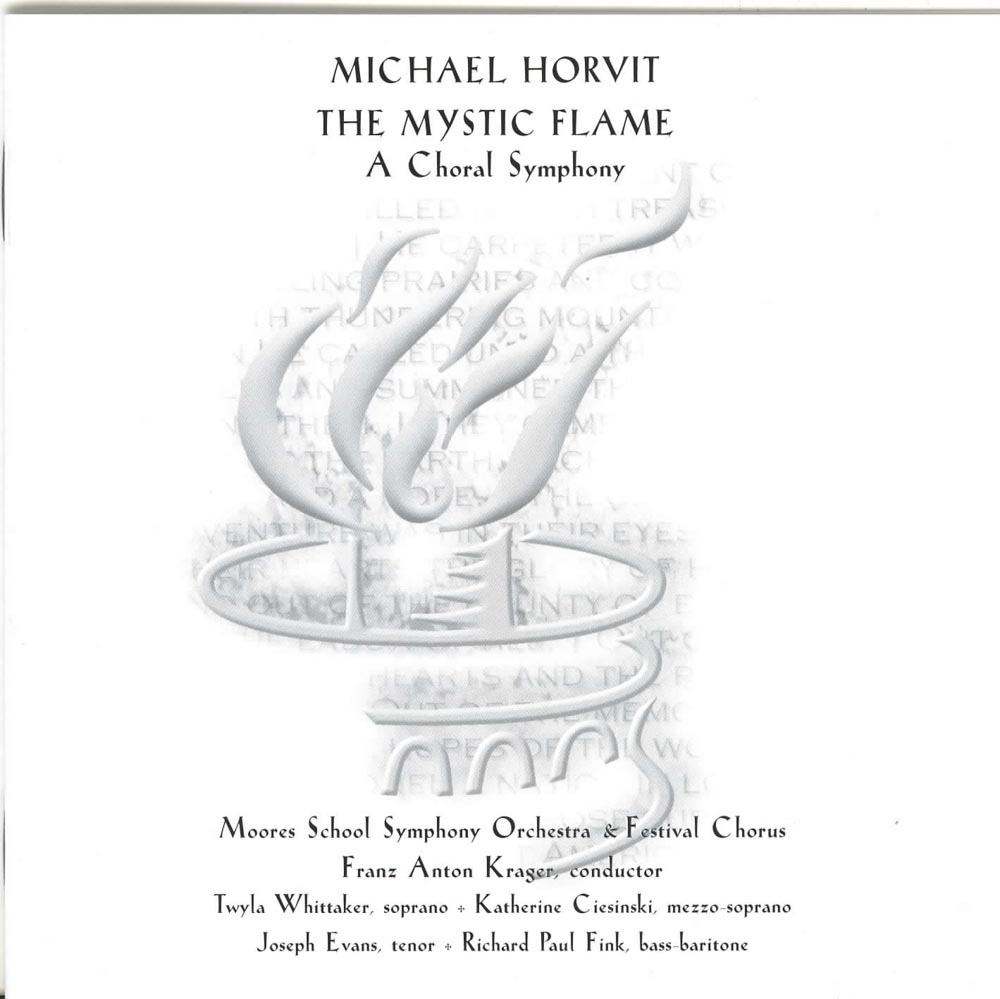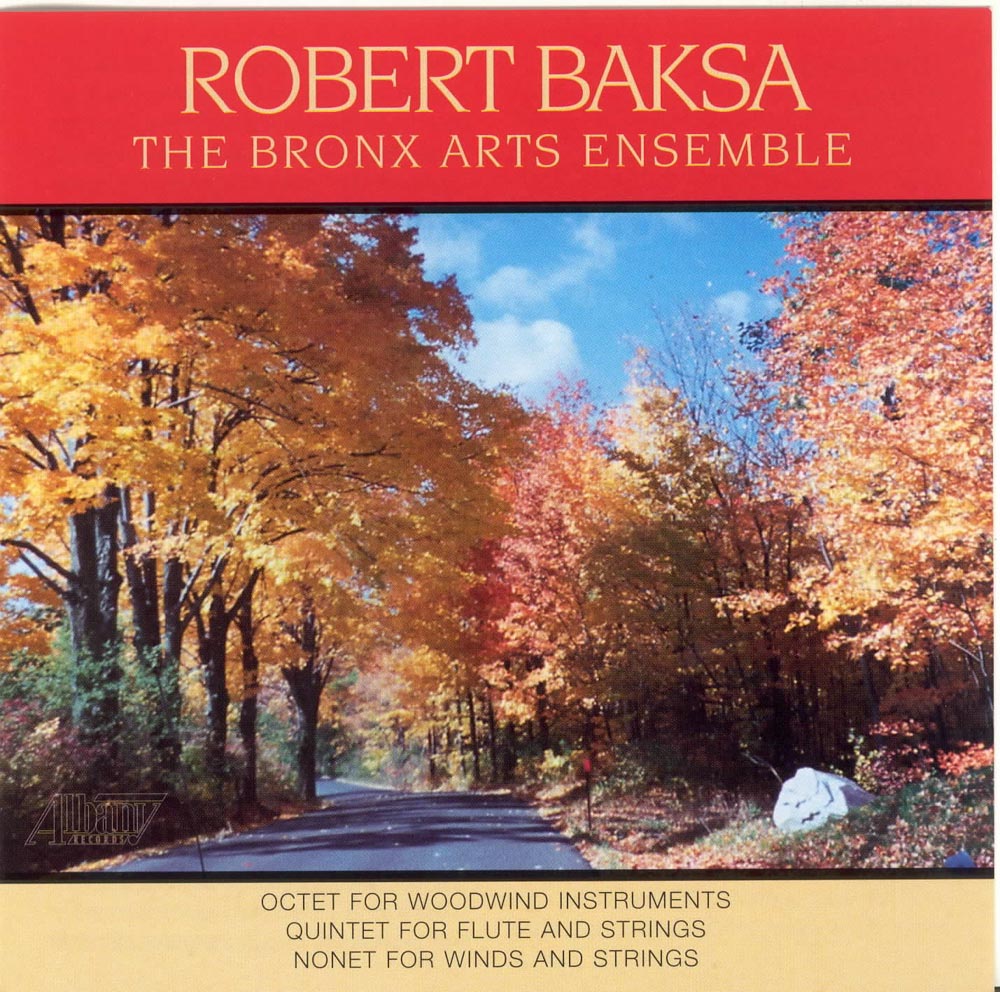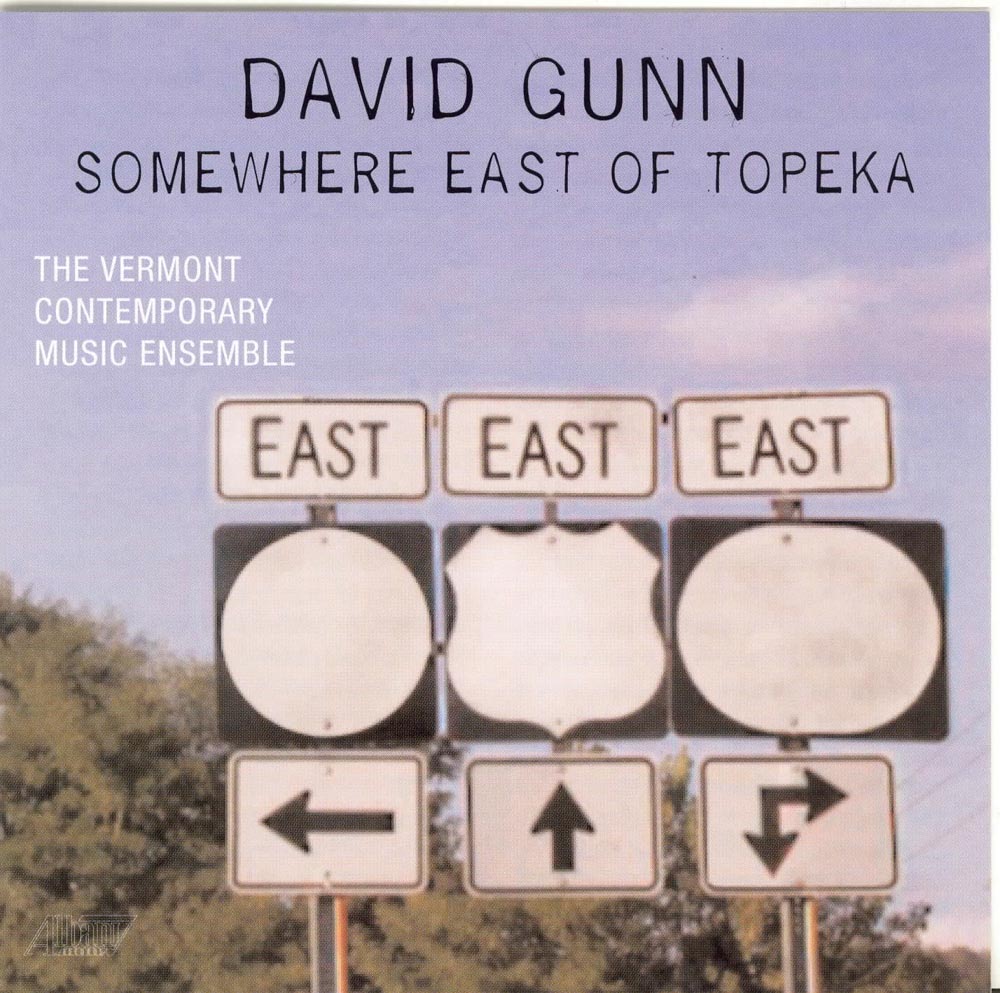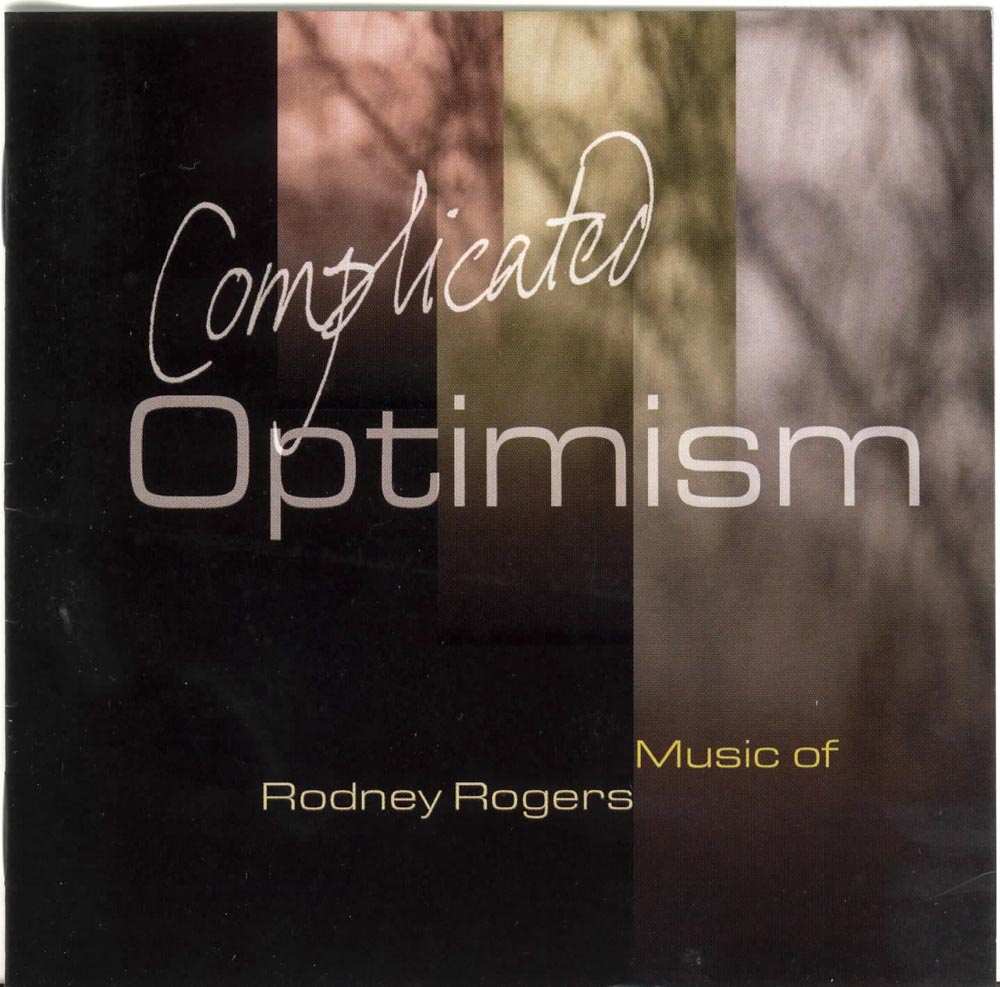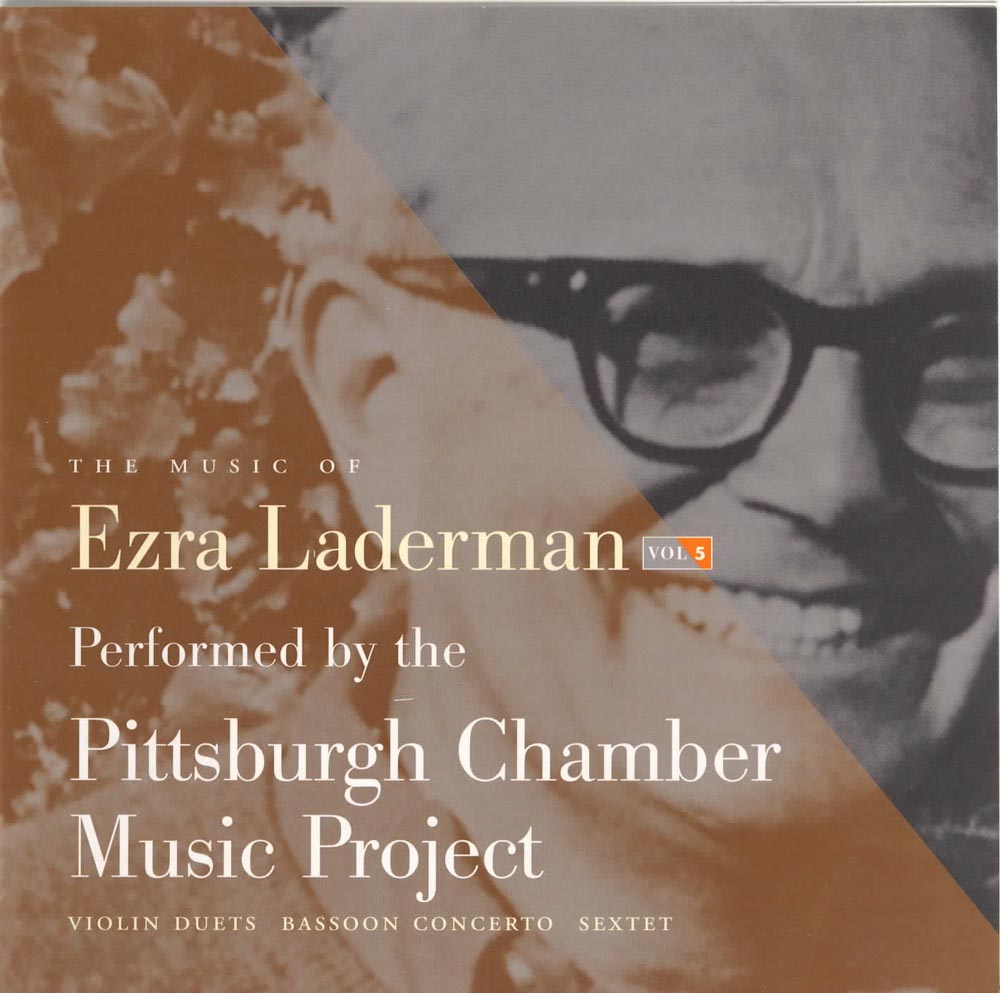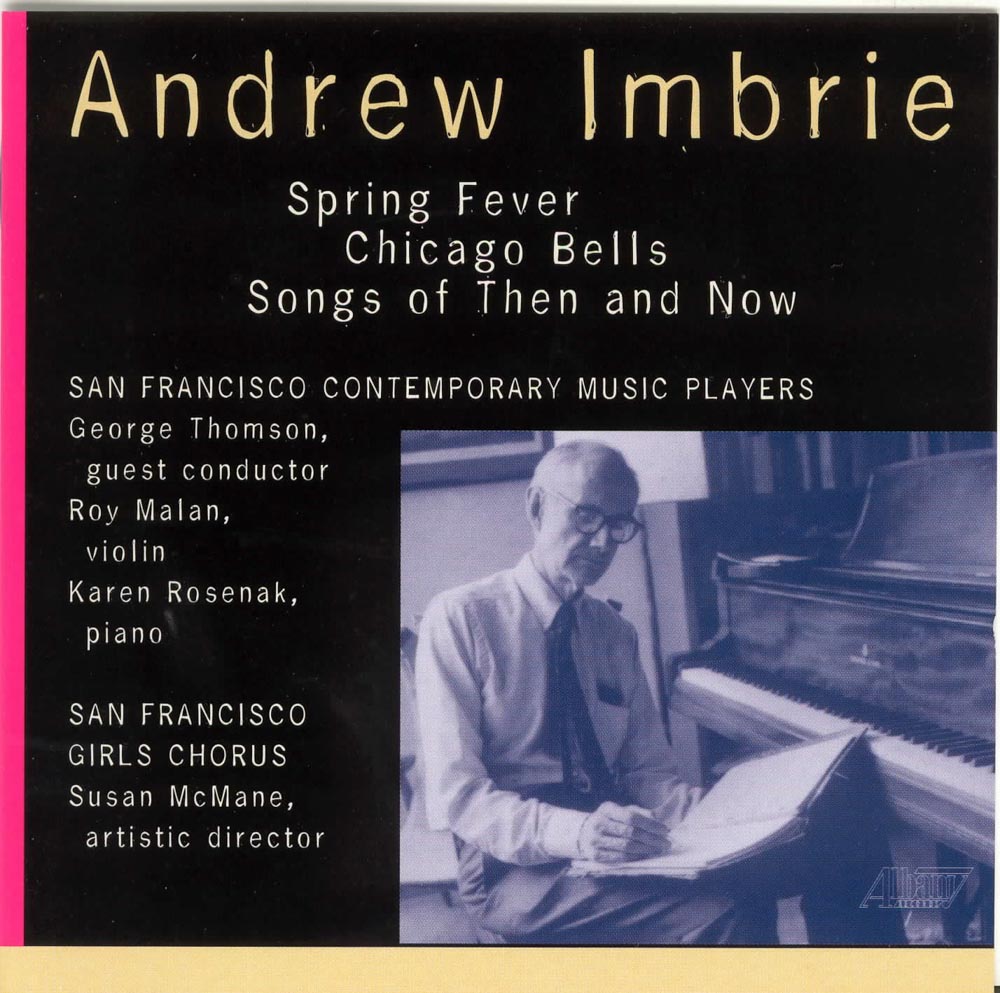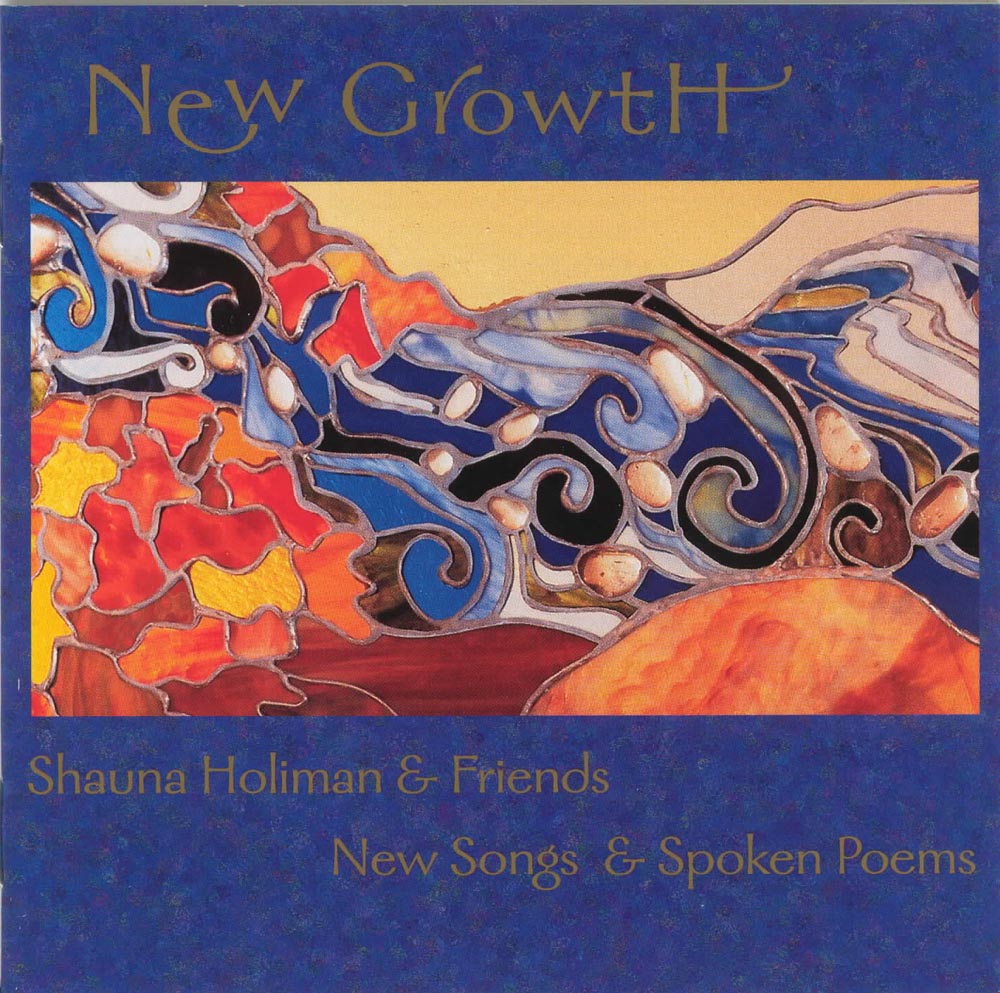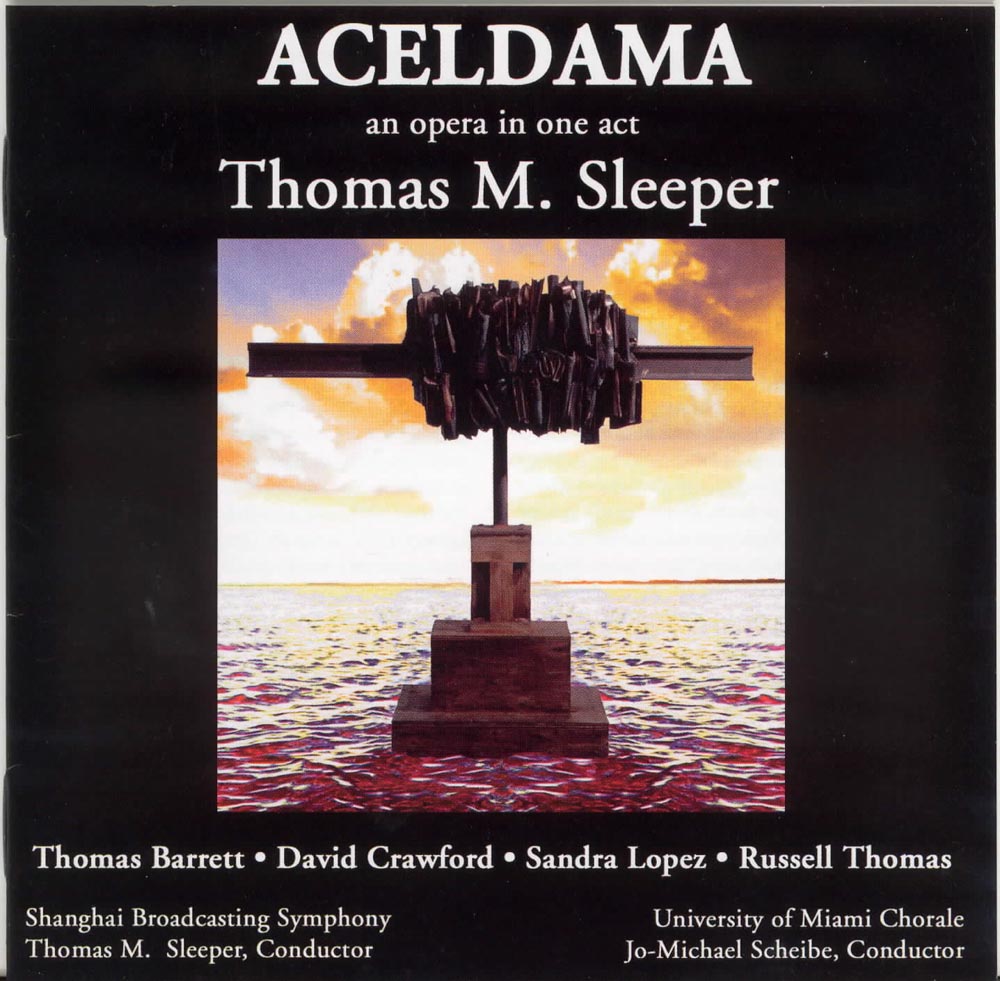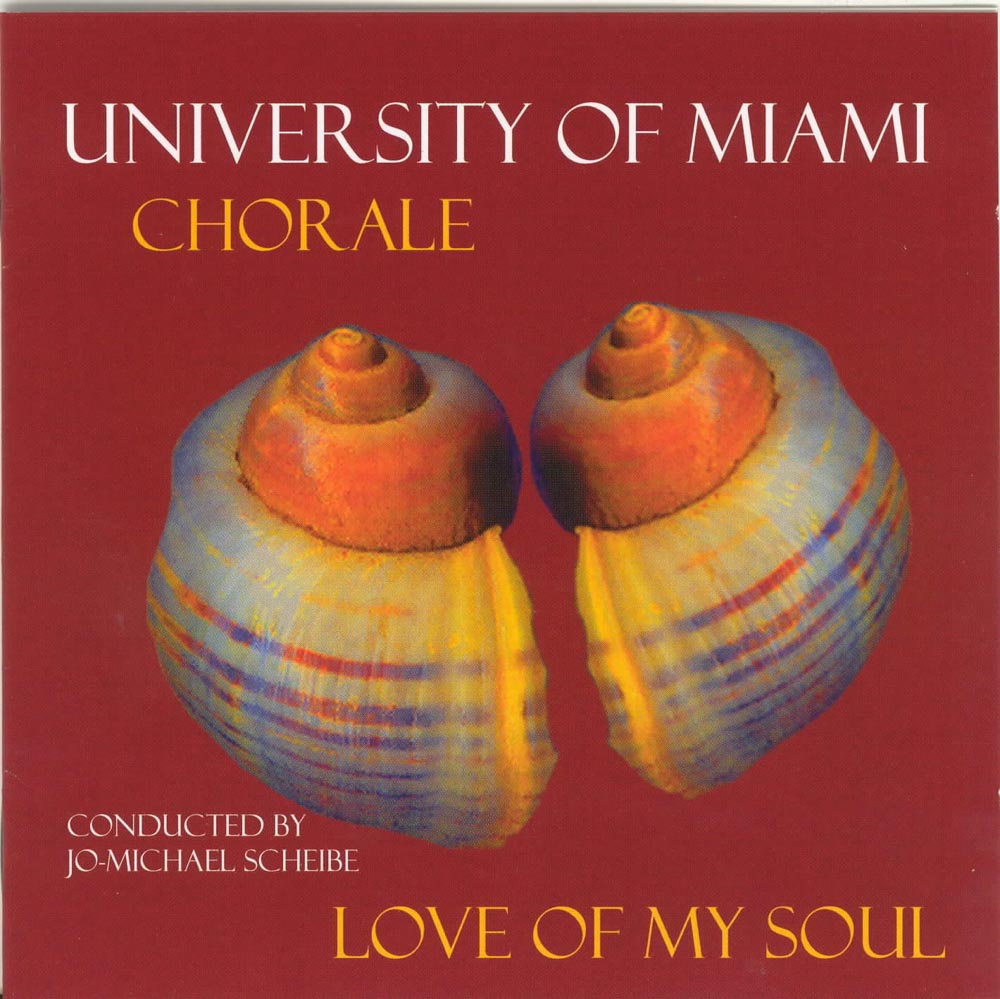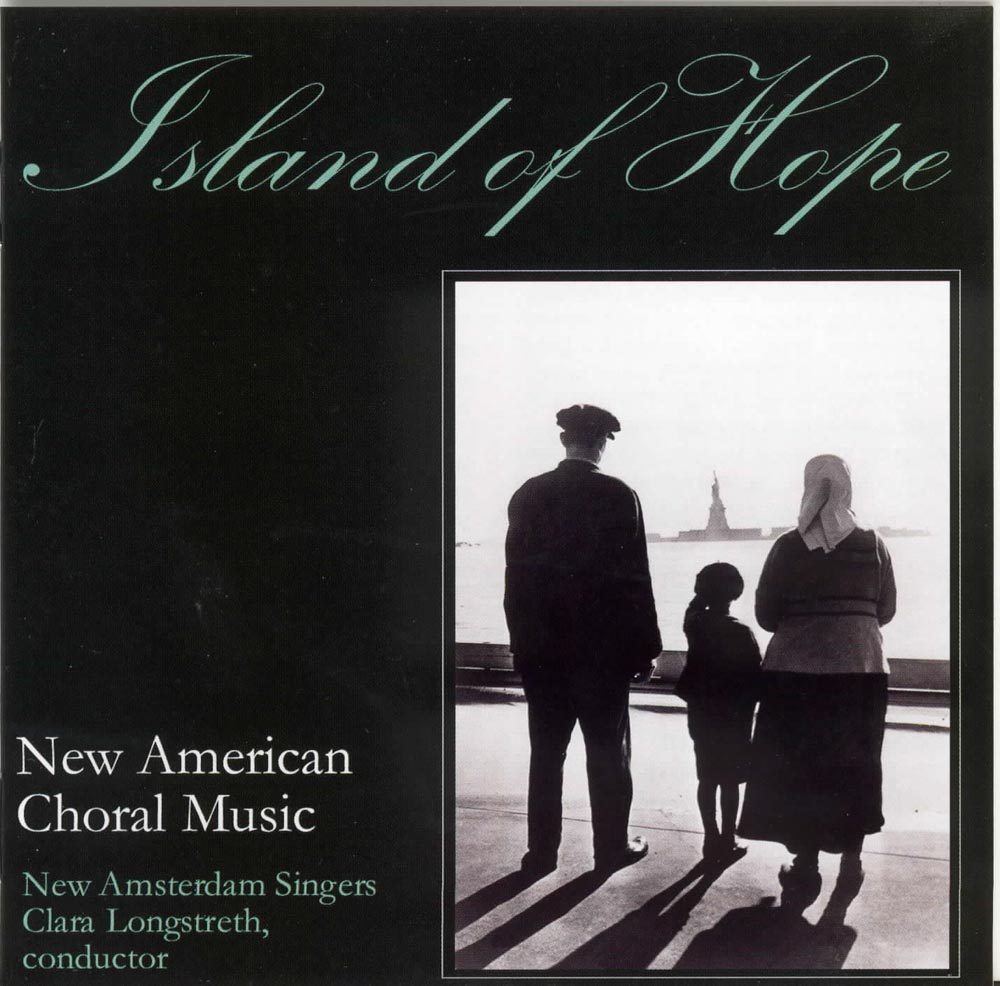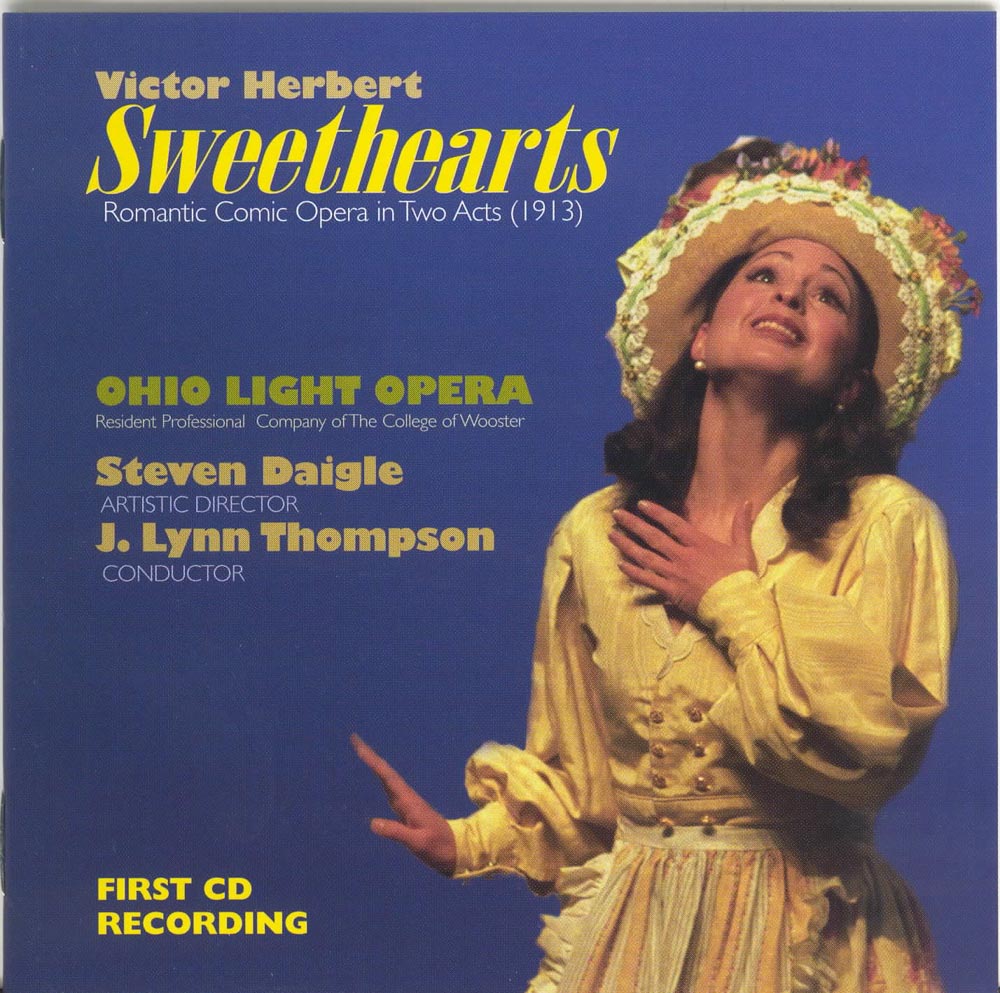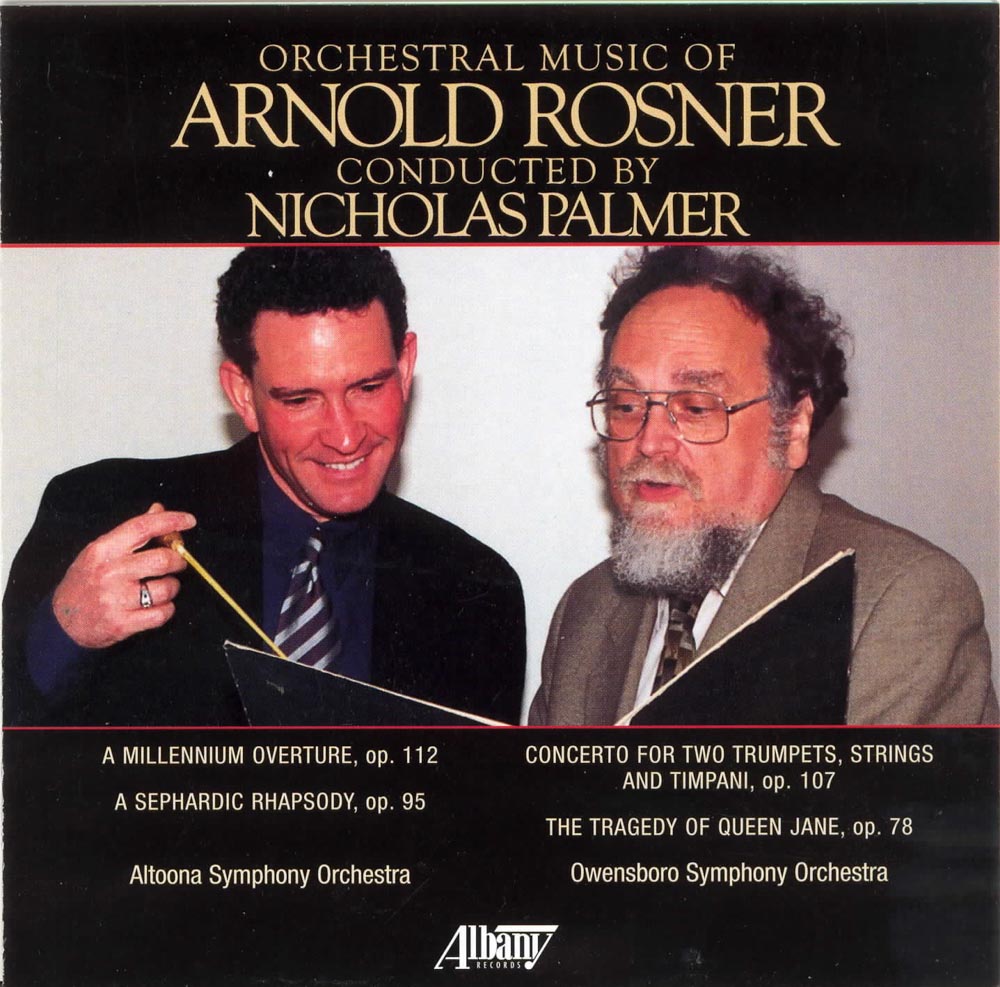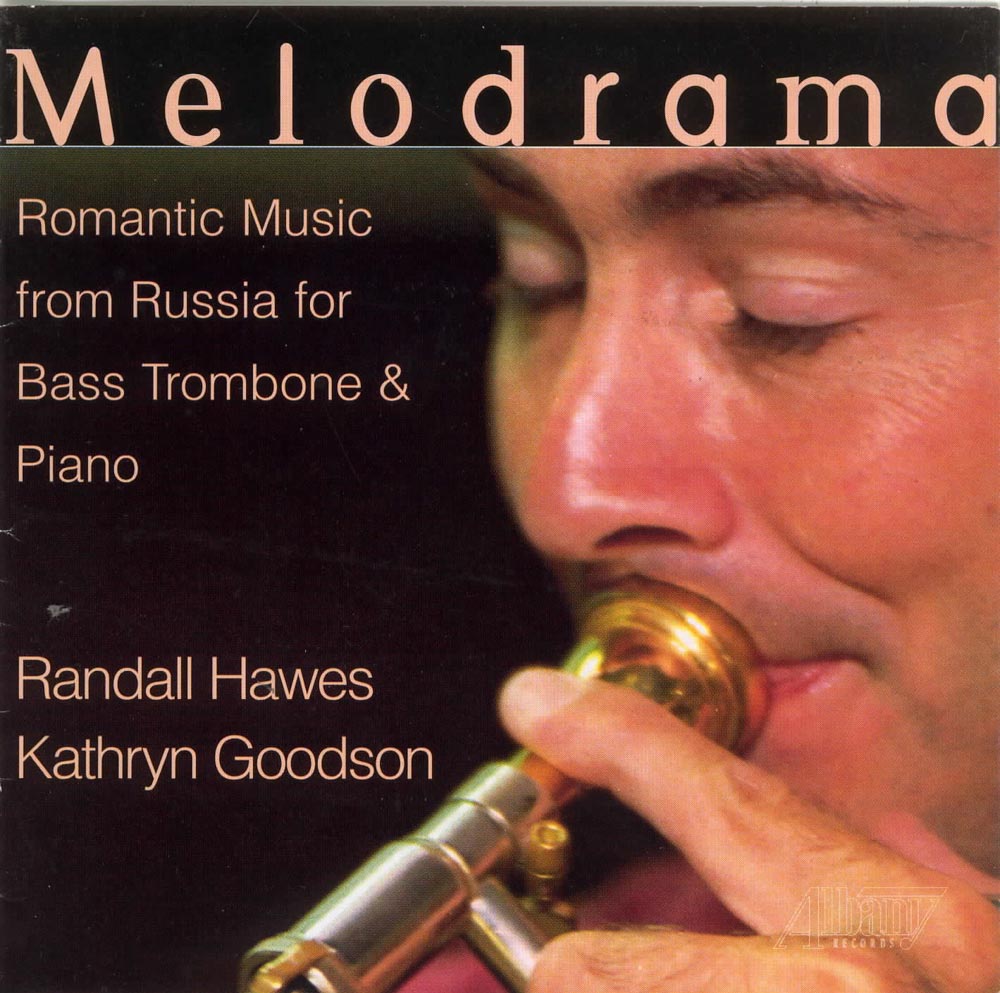Catalog #: TROY0516
Release Date: August 1, 2002OrchestralAbout his Symphony No. 5 James Yannatos writes: "Symphony No. 5: Sons et Lumiere (1991) derives its title from the sound and light shows so popular in France in which historical events related to a particular epoch, chateau, or monument are dramatized through the use of sound and light. The title alludes to past as well as to present events in which the political face of Europe and Africa is changing. On another level, Sons et Lumiere refers to vibrations and waves that move through real time and space in the form of sound and interplay between the various levels of musical sound and meaning, referring to our physical world as we live it, our sensory world as we see, hear and feel it, and our spiritual world as we attempt to comprehend it." In May of every other year more than 900 cello lovers - from beginning cellists to esteemed cello soloists - congregate in Manchester, England for the International Cello Festival. The brain-child of cellist Ralph Kirschbaum, this festival features workshops, films, exhibitions, and performances by and for cellists. The Festival almost always features a premiere of a cello piece, and in 1994, Yehudi Wyner was commissioned to compose a piece for cello and orchestra. The result was the Prologue and Narrative for cello and orchestra, which Wyner himself describes: "Finding a title for the piece has been a difficult task. To call it a Concerto for Cello and Orchestra would be misleading, since the term "concerto" implies a form as well as a relationship. In general, my musical thinking is not comfortable with conventional modes of construction, nor does it rely on received conventions of form. While the music is constructed with great attention to contextual unity and formal coherence, it also strives for a sense of the informal, the improvisational, the spontaneous." Composer Charles Fussell was Artistic Director of New Music Harvest, Boston's first city-wide festival of contemporary music and Co-Founder and Director of the New England Composer's Orchestra. He is a member of the composition faculty at Boston University. His Symphony No. 5 was written in 1994-95 in memory of Virgil Thomson. The premiere was given November 1996 by the New Hampshire Symphony under the direction of James Bolle.
Catalog #: TROY0517
Release Date: July 1, 2002OrchestralDan Locklair, a native of Charlotte, North Carolina, holds a Master of Sacred Music degree from the School of Sacred Music of Union Theological Seminary in New York City and a Doctor of Musical Arts degree from the Eastman School of Music. Presently, he is Composer-in-Residence and Professor of Music at Wake Forest University in Winston-Salem, North Carolina. In its centennial year, Dr. Locklair was named 1996 AGO Composer of the Year by the American Guild of Organists, a distinguished honor awarded yearly to an American composer who has not only enriched the organ repertoire, but who has also made significant contributions to symphonic and concert music. His 1995 composition, Since Dawn (A Tone Poem for Narrator, Chorus and Orchestra based on Maya Angelou's On the Pulse of Morning), is the first musical setting of Maya Angelou's well-known and important poem commissioned for the 1993 Inauguration of President Clinton.
Catalog #: TROY0519
Release Date: July 1, 2002OrchestralRonald Perera is the Elsie Irwin Sweeney Professor of Music at Smith College. His compositions include operas, song cycles, chamber, choral and orchestral music and several works that combine instruments or voices with electronic sounds. Donald Wheelock is Irwin and Pauline Alper Glass Professor of Music at Smith College, where he has been a member of the faculty since 1974. His teachers include Edgar Curtis, Kenneth Leighton, Quincy Porter and Yehudi Wyner. His works include four string quartets, two symphonies, many works for solo instruments, eleven song cycles and many larger ensemble and orchestral works. Ed London is known primarily as a composer and conductor. His teachers included Gunther Schuller, Luigi Dallapiccola and Darius Milhaud. Like two other composers and one of the performers on this recording, he has a connection with Smith College, having taught there for most of the 60s. Since then he has taught at the University of Illinois and at Cleveland State University, where he founded the Cleveland Chamber Symphony, the award-winning ensemble renowned for its enthusiastic performances of the works of living composers. The name Otto Luening appears most frequently in conjunction with his pioneering efforts with Vladimir Ussachevsky in the early days of electronic music. His talents, however, ranged far wider than experimentation in this area. He was trained extensively, both in Europe and America, as a flautist, conductor and composer, and his career, both as flautist and conductor, was considerable.
Catalog #: TROY0520
Release Date: June 1, 2002ChamberNed Rorem composed his End of Summer during the late summer of 1985 in Nantucket. "The trio follows in the wake of my septet, Scenes from Childhood. The pieces are about the same length and are formed from souvenirs. But while the septet contained 12 movements describing geographical landmarks of my youth, the trio is in but three, each suggested by musical works of yore. There are suggestions of Satie, Brahms, hopscotch ditties and Protestant anthems." An Oboe Book was commissioned for the 30th anniversary of the Martha's Vineyard Chamber Music Society and premiered in July 1999 by the guest soloists on this CD. Ariel, Five Poems of Sylvia Plath was composed in New York during May 1971 and was presented as a gift to Phyllis Curtin. The poems that make up the text are among Plath's last writings and vividly reflect that tumultuous period in her life and the suicide that soon ended it. In assembling a set of songs for clarinet, double bass and piano, Gotham Ensemble music director Thomas Piercy asked composer Rorem if he had any songs whose vocal line seemed particularly suitable for the clarinet. Piercy wrote: "Ned suggested any number of his songs would be appropriate. Playing through more than fifty, we settled on the four heard here. After listening to a rehearsal in preparation for the recording, Rorem decided to title the set Four Poems without Words."
Catalog #: TROY0521
Release Date: September 1, 2002OrchestralThis recording brings together some wonderful concertos for orchestra and unusual instruments, most of which are first recordings. The solo part of Jan Bach's Steelpan Concerto was actually written for soprano pan, a steel instrument that usually plays the primary part in the Caribbean steel bands. The work was composed in 1994 for Liam Teague, a young musician from Trinidad whose musicianship inspired the work. Morton Gould's Concerto for Tap Dancer and Orchestra, written in 1952, brings together Gould's flare for Americana and his passion for dance. Inspired by the percussive quality of the tap medium, Gould's concerto is typically inventive in mixing musical tradition with modern American culture. Leone's Harp Concerto was commissioned and premiered in 1994 by Concertante di Chicago with Elizabeth Cifani as soloist. Like all his music, it is influenced by the popular music of Latin America where he grew up. Ricardo Lorenz was born in Maracaibo, Venezuela in 1961 and is considered one of the most prominent Venezuelan composers of his generation. Playing the maracas in Venezuela has developed into a highly virtuosic art form that is considered by connoisseurs as one of the world's most sophisticated vernacular percussion techniques. One of these connoisseurs is Chicago's Lyric Opera percussionist Ed Harrison, for whom the concerto was composed. Harrison learned to play the maracas in the typical Venezuelan style during his tenure as percussionist of the Orquesta Filarmonica de Caracas.
Catalog #: TROY0522
Release Date: December 1, 2002VocalJust as she blends a masterful mix of musical genres in concert halls across the country, engaging oratorio soloist Dawn Holt Lauber will inspire the musical choices you make for your wedding day with this collection of the old and new, appropriately titled "Something Borrowed, Something Blue." Listen in and you will be lured by a handful of selections that are a bit off the beaten path - a beautiful marriage of classical and jazz that promises to be a perfect accompaniment to the beginning of your new life together. Dawn Holt Lauber has appeared extensively with the Chicago Jazz Ensemble. She first performed Duke Ellington's sacred works at the Riverside Church in New York City with members of the Duke Ellington Orchestra. She has been a soloist at the Riverside Church for five years.
Catalog #: TROY0523
Release Date: September 1, 2002InstrumentalAlbany Records continues its series of recordings of George Walker, who has achieved international recognition as a pianist and as a composer. Walker has published more than 80 works for every medium except opera. He was inducted into the American Academy of Arts and Letters in 1996. With his inclusion into the American Classical Music Hall of Fame in 2000, he became the only living pianist-composer to receive this honor. The four piano sonatas, the brilliant and dynamic Piano Concerto and other shorter works that he has composed have expanded the standard repertoire of classical piano literature. Nevertheless, his devotion to the music of the great composers of the past remains undiminished, as evidenced by this superbly played recording.
Catalog #: TROY0524
Release Date: January 1, 2003Wind EnsembleEric Whitacre received his M.M. in composition from the Juilliard School, where he studied composition with John Corigliano. In 1996, Gary Green approached him about a possible commission for the University of Miami Wind Ensemble. The composer began work on the commission on July 1, 1997, but two years later, little progress had been made. "That is not to say I had not written anything. On the contrary, I had written about 100 pages of material for three different pieces, but I wanted to give Gary something special and just could not find the perfect spark." The spark finally did come and the piece was premiered in March, 2000. Ney Rosauro was born in Rio de Janeiro. He composed his Concerto for Marimba and Wind Ensemble during the winter of 1986 in Brazil and it was dedicated to his son. The music was originally written for marimba and string orchestra. The version heard on this recording was made several years later. Mark Camphouse is a product of the rich cultural life of Chicago. He was born in Oak Park, Illinois, studied at Northwestern University, and his First Symphony was premiered by the Colorado Philharmonic when he was 17 years old. Mark Camphouse writes: "Placed on the National Register of Historic Places in 1954, Ivy Green (the birthplace of Helen Keller) is located on a lovely 642 acre tract in historic Tuscumbia, Alabama. Truly America's first lady of courage, Helen Keller's powerful and wonderfully lyrical writings (ideally suited to musical dramatization) are just as compelling now as they were when they first appeared over half a century ago." It is these words that are set to music by Mr. Camphouse for soprano and wind orchestra in his piece Symphony from Ivy Green.
Catalog #: TROY0525
Release Date: October 1, 2002Wind EnsembleThomas Sleeper is the conductor of the University of Miami Symphony Orchestra. He composed his Concerto for Piano and Wind Ensemble in 1986. It was premiered in April, 1987. The three movement work, while not programmatic, attempts to capture the general essence of three characters from Goethe's Faust. The Concerto was revised in 1997 and this is the second performance of that revision. Michael Colgrass' first musical experiences were as a jazz drummer in the Chicago area (1944-49). In 1954 he graduated from the University of Illinois in music performance and composition. His teachers included Darius Milhaud and Lukas Foss. Of Dream Dancer, Mr. Colgrass writes: "The musical cultures of the world are opening up as never before. Dream Dancer is a fantasy about a musical instrument that feels attracted to various styles of music, trying to decide which one to play. I like to think of Dream Dancer as a kind of musical play with the soloist and the other instruments being actors who respond to each other dramatically." James Syler was raised in New York and Florida and educated at Northern Illinois University, the University of Miami and the University of Texas at Austin. He is primarily a self-taught composer with brief studies with Alfred Reed, Karl Korte and Michael Colgrass. He writes: "For many years I've wanted to write a large work that would combine my musical and literary interest. So much of 20th century fiction presents despairing characters who find their resolution in some form of self-destruction. In writing the text for this work I wanted to create a narrative that would resolve despair in a different way. This free verse lyrical narrative, titled Blue, is in the broadest sense about the loss of love and the process of reconnecting with love."
Catalog #: TROY0526
Release Date: December 1, 2002ChamberSaxophonist John Sampen is dedicated to the promotion and performance of contemporary art music. His sponsorship of new music has resulted in premieres of over sixty works, including commissions by Rands, Subotnick, Cage, Adler and Babbitt. He has also premiered first performances of saxophone arrangements by Lutoslawski, Stockhausen and Tower. Dr. Sampen is presently Distinguished Artist Professor at Bowling Green State University and past-president of the North American Saxophone Alliance. Composer/pianist Marilyn Shrude is an active proponent of contemporary music in America and she has won a Kennedy Center Friedheim Award for Orchestral Music. Her compositions are recognized for their "shimmering sounds" and "sensuous beauty." She served as chair of the Theory and Composition Department at Interlochen Arts Camp and was a visiting faculty member at Indiana University. She is currently Distinguished Artist Professor and chair of the Musicology/Composition/Theory Department at Bowling Green State University. She has been performing with John Sampen since 1972.
Catalog #: TROY0527
Release Date: September 1, 2002ChamberAmong composers of so-called serious music over the last 50 years, few have realized the term "serious" as uniquely and powerfully as has Alvin Singleton. With many contemporary composers the seriousness of their work has been concerned with musical structure; Singleton throughout his career has answered the call of allowing his music to address crucial matters of his time. But this has always been accomplished through eloquent crafting of his musical materials. Singleton was born in Brooklyn, New York in 1940, the son of warm, witty, devoutly Christian parents. Abandoning a career as a CPA after falling in love with a Mahler symphony, Singleton studied composition at both New York University and Yale before working with Goffredo Petrassi as a Fulbright Scholar in Rome. He remained in Europe for nearly a decade and a half before returning to the U.S. to serve as composer-in-residence with the Atlanta Symphony Orchestra. Extension of a Dream, written in 1977 and revised in 1987, memorializes the brutal beating death of South African freedom fighter Steve Biko by South African police. Argoru is a word from the Ghanaian Twi language meaning "to play" and both works heard on this disc, ArgoruVII and Argoru VI are scored for solo instruments (vibraphone and marimba). Between Sisters (1990) is a musical setting of "The House Slave," a poem by former U.S. Poet Laureate and Pulitzer Prize winner Rita Dove.
Catalog #: TROY0528
Release Date: April 1, 2003VocalVariations of Greek Themes was commissioned by The Chamber Music Society of Lincoln Center and received its first performance on November 20, 1977, with Maureen Forrester as soloist. "Variations of Greek Themes," Edward Arlington Robinson's collection of twelve poems based on texts by ancient authors, was published in 1915. Eight of the poems are set in this cycle. Innocence and Experience is a cycle of songs from the poems of William Blake. It was commissioned by the friends of Music at Yale (where Mr.Lewin taught music from 1971 to 1992) and received its first performance in 1961, with Helen Boatwright as soloist. Seven poems by Blake are arranged into a cycle of two contrasting days; they are set to music for soprano solo, and an ensemble of flute, oboe, horn, harp, two violins, viola, and two cellos. The text forms a cosmos of recurring images and ideas, several of which are reflected by corresponding musical devices. A Musical Nashery is a cycle of songs from the poems of Ogden Nash and was commissioned by Naomi Lewin, who gave its first performance on March 5, 1980, at the Yale School of Music, as part of her recital for a Master of Music degree. Complete texts are included in the program booklet for all the songs.
Catalog #: TROY0529
Release Date: June 1, 2003ChamberIn the pieces presented here, four composers of different generations suggest a panorama of modern Romanian music in the last 70 years. The similarities and differences in style and expressive techniques do not always correlate with the time of their composition. In particular, the charming, specifically Romanian variety of impressionism in Martian Negrea's Suite contrasts radically with its contemporary, the abstract, incisive, ironic Sonata by Constantin Silvestri. The modernity of these pieces is deeply grounded in their original use of Romanian oral musical traditions from folk and Byzantine sources, of non-European traditions, and of representative 20th century musical landmarks such as Debussy, Stravinsky and Berg. The duo of Ray Jackendoff and Valentina Sandu-Dediu was founded in Berlin in 2000, where they were both Fellows at the Center for Advanced Study. What began as casual get-togethers to read chamber music quickly developed into intense and enthusiastic rehearsals. Valentina's husband, composer Dan Dediu started quietly dropping into their mailboxes, a few pages at a time, a new piece written for them. Soon plans were afoot for a number of concerts, and not long afterward, for the present recording, which offers first performances on CD of works by composers little known in the West.
Catalog #: TROY0530
Release Date: August 1, 2002VocalRossini cherished a lifelong fondness for Venice, the scene of his first operatic triumphs. During long years of "retirement" (he composed his last opera, Guillaume Tell in 1829 at the age of 37), he led a restless existence, leaving Paris in 1836 for Milan, Bologna, and Florence, until finally embracing Paris for good in 1855. Only there, it seems, could his muse express herself through the intimate genres of the solo song and the small piano piece. Except for a certain feline aria - which is exceptional in every way - all the works on this program come from two Parisian collections: the 1835 Soirees musicales with its eight solo songs and four duets, and the Peches de vieillesse ("Sins of old age"), with its thirteen volumes of songs, vocal ensembles and piano pieces composed after 1856. So here we have the superb American soprano Julianne Baird and some of her friends, accompanied by the fortepianist Andrew Willis, performing a delightful program of Venetian barcarolles, love duets, ensembles and gondolier songs, all by Rossini.
Catalog #: TROY0531-32
Release Date: December 24, 2002Opera"My journey down the Amazon, the real and operatic one, began in the studio of my dear friend Alvaro Mutis. He knows the jungle intimately and has written about it all his life; at the same time he is a great lover of opera. The combination could not be better. We met many times in his studio. Prints of magnificent riverboats occupy the spaces normally reserved for family photographs. It was there that I learned about the dangers of river navigation, and also about the psychological states the Amazon induces in its travelers; the way it conjures up their most secret desires and deepest fears. In the opera, Florencia undertakes a journey that will bring her back to her origins. It is, I believe, the story of the return journey that we all undertake at a certain point in our lives: the moment when we look back at what we once dreamed of becoming, and then confront what we have now become. As Florencia sings her final aria, her voice, her song and she herself, become intertwined with the image of a butterfly. She breaks through her cocoon; her voice soars, her song acquires transparent wings. Love and beauty become indistinguishable from each other. The image of the butterfly, supremely beautiful from the moment of its birth, is overtly present at the end of Florencia. But it is an image that has been present in my mind as I composed several of my works. I have asked myself why. I think it is my way of understanding the moment when something is no more, my way of transforming it, like when I finish an opera, and say good-bye to characters that have lived with me for so long and have taught me so much, that grew out of me so I could be born out of them, that are, in the end, indistinguishable from myself." Daniel Catàn now lives in Los Angeles and is working on a new commissioned opera for Houston Grand Opera
Catalog #: TROY0533
Release Date: October 1, 2002ChoralMichael Horvit is Professor of Composition and Theory at the University of Houston Moores School of Music. For 25 years he served as music director at Congregation Emanu El, Houston, Texas. During his studies at Yale University, Tanglewood, Harvard University and Boston University, where he received his DMA degree, Dr. Horvit's composition teachers were Aaron Copland, Lukas Foss, Walter Piston, Quincy Porter and Gardner Read. In turn, Horvit has taught two generations of music students at the University of Houston. Commissioned by Congregation Emanu El, The Mystic Flame chronicles in words and music the Jewish experience in the 20th century. Texts are drawn from many sources: poets, novelists, historians, ministers, rabbis, major actors upon the world stage and ordinary people. This vast canvas of words and music, arranged in three large sections, mirrors the historical shape of the 20th century. Here we have the chronicle of one people, the Jewish people, in their struggle to be free from persecution, subjugation and bigotry. It is, however, symbolic of the struggle of all the diverse immigrants who came to our great nation. They came, and still come, to find freedom from oppression, be it religious, economic or political. They come "yearning to breathe free."
Catalog #: TROY0534
Release Date: September 1, 2002ChamberRobert Baksa is one of America's most prolific composers with more than 500 works to his credit. He was born in New York City in 1938 but grew up in Tucson, Arizona. Baksa attended the University of Arizona, then returned to New York to live after spending a summer at Tanglewood. Currently he serves as Resident Composer and Coordinator of New Music for the Pleshakov Music Center in Hudson, New York. The Octet for Woodwinds was completed in 1972 and takes its inspiration from the wind serenades of the early classical period. The Quintet for Flute and Strings, written in 1973, was premiered at the National Flute Association Convention. The 1974 Nonet for Winds and Strings was commissioned by the Chamber Music Conference of the East at Bennington, Vermont. It was written to be presented during the period of the composer's tenure as Composer-in-Residence that summer and was later taken up by other chamber ensembles across the country including the Bronx Arts Ensemble, which has premiered and recorded more than a dozen of Baksa's chamber works.
Catalog #: TROY0535
Release Date: January 1, 2003ChamberDavid Ross Gunn began his musical training at Settlement Music School in Philadelphia, studying piano and percussion. He later graduated from Ohio State University with a degree in music composition. It's easy to be dismissed as trivial when your music is attractive, and with David Gunn's music, that would mean missing out on its real attraction. Long before it was fashionable, Gunn used clear-cut rhythms, evident melodies, and explicit harmonies - all while moving music forward into new territory, not backward into some neo-romantic haze. Besides being a composer, Gunn is also a writer, humorist, a new music radio show co-host. He currently lives in the middle of Vermont and in hope of, in order, peace on earth, good will towards men, and a pile of cash in the bank.
Catalog #: TROY0536
Release Date: November 1, 2002ChamberRodney Rogers has written music for a wide variety of media, including orchestra, chorus, wind ensemble and chamber groups. He first gained national recognition as a composer while in college with BMI Awards, the ASCAP Foundation Grant for Young Composers and a fellowship to Tanglewood. Named "Distinguished Composer of the Year" in 1989 by the Music Teachers National Association for his composition Riffing in Tandem, he has also received a NEA Consortium Commission and residencies at the MacDowell Colony and Yadoo Artist Colony. Today, he is on the composition faculty at Arizona State University in Tempe, Arizona.
Catalog #: TROY0537
Release Date: November 1, 2002ChamberFor five decades Ezra Laderman has been privileged to be performed by the musicians of Pittsburgh. The Pittsburgh Symphony has collaborated with him a number of times; in 2003 the orchestra will feature its bass clarinetist, Richard Page, in a new Laderman concerto that it has commissioned. Other of the city's ensembles over the years have been equally staunch supporters of the composer's work. The newest of them, The Pittsburgh Chamber Music Project, commissioned and premiered Laderman's 1997 Sextet for English horn, bass clarinet and string quartet. Laderman is an attentive collaborator. He gets to know the musicians as people, and in composing his works often chooses the performer's personalities as a point of departure. Certainly he has done so in a number of his string quartets, a genre for which he is deservedly celebrated. The composer's Violin Duets were composed in 1998. Like the works by Bartok and Berio, they are miniature meditations, each composed in a single session, a day, a few hours, that performed together accumulate artistic weight through comparison and contrast. A year after graduating from Columbia University in 1952, Laderman began work on a Concerto for Bassoon and Strings. He completed the concerto in 1954, and it was given a reading by Bernard Garfield (who, later, for many years, was the principal bassoonist of the Philadelphia Orchestra) and the National Symphony under Leon Barzin. But, aside from a student performance at Juilliard, the work remained on the shelf for more than forty years. Laderman completely overhauled the work in 2000 and the result is what is recorded here.
Catalog #: TROY0538
Release Date: October 1, 2002ChoralAndrew Imbrie has enriched the American contemporary music scene for over five decades. This recording pays tribute to his legacy with performances of three compositions from the late 1990s. His fluency at the keyboard springs from his early training in piano with such teachers as Leo Ornstein, Olga Samaroff, Rosalyn Tureck and Robert Casadesus. These teachers (and a summer studying with Nadia Boulanger) nurtured his interest in theory and composition, but it was during his undergraduate years at Princeton that he found his most significant musical mentor, Roger Sessions. Imbrie's senior thesis, String Quartet # 1 (1942), won a New York Music Critics' Award in 1944 and was recorded by the famed Juilliard String Quartet. After military service during World War II, Imbrie followed Sessions to the University of California,. Berkeley and received his master's degree there. Upon graduation, Imbrie was offered a faculty position at Berkeley that he held until his retirement in 1991. For over four decades, Imbrie has served as a teacher and mentor for composers ranging across the stylistic spectrum from experimentalist Larry Austin to the mischievously "traditionalist" David Del Tredici. He has held visiting professorships at the University of Chicago, Northwestern University, New York University, and Harvard. About Spring Fever the composer writes: "This work was begun in Berkeley but completed in Chicago on November 26, 1996. Its title reflects, perhaps, my sense of the onset of winter in that city, and my yearning for spring, with its varying excitements and instabilities." Chicago Bells was commissioned by the McKim Fund in the Library of Congress. It was premiered there in May 2001, by the soloists heard on this disc. "This work was composed in 1997, while I was serving as guest professor at the University of Chicago. I would walk through the campus on my way to meeting with my students; and as I proceeded through the myriad quadrangles I would occasionally hear the sound of bells in the towers, echoing and clanging. This sound was the inspiration for the opening of the work and influenced it in various ways." Songs of Then and Now, settings of poetry by Robert Louis Stevenson, William Shakespeare, and e. e. cummings, explore the ebullience, disillusionment, love, and magic of growing up. "The title of this group of songs can have two meanings: one that draws attention to the variety of texts used; the other referring to the ages of the singers, who have just crossed the threshold and are now young adults. Then refers to vivid memories of recent childhood; now suggests a wide-open world of discovery."
Catalog #: TROY0539
Release Date: November 1, 2002VocalThe title of this CD tells the listener all that needs to be known about what to expect from this disc: A Superb Gathering of Poets and Musicians. Here we have music by composers Melissa Shiflett, Lee Hoiby and Elliot Z. Levine to poems by poets Sara Teasdale, Jeffery Beam, Shauna Holiman and Katha Pollitt, performed by musicans Shauna Holiman, Arlene Shrut, Barbara Stein Mallow, Brent McMunn, Amelia Watkins, Ann Salwey, Jeffery Beam, and Katha Pollitt. In the booklet there is complete biographical information about all of the artists who take part in this production. The number is considerable because the poets are integral to the music making.
Catalog #: TROY0541
Release Date: January 1, 2003Opera"...his music is tonal and melodic yet Sleeper avoids high sucrose neo-Romanticism for a darker, more personal and edgy style, bristling with nervous energy," writes the music critic Larry Johnson. Thomas M. Sleeper currently resides in Miami, Florida, where he is Director of Orchestral Activities and Conductor of the University of Miami Orchestra and Opera Theater. "Aceldama," Greek for "field of blood," appears in reference to the field where Cain slew Abel in the first recorded homicide (in fact, fratricide) of the Judeo-Christian tradition. "Aceldama" is sometimes also used to describe the field where Judas committed suicide after his betrayal of Christ. The opera Aceldama is based on the story of Cain and Abel and takes this tragedy through the ages to the Nazi Germany death camps and beyond. Three parts are joined to form one act. Part I takes place in the 1940s, with the final scene projecting surrealistically into the present and the future. Elements are fused from accounts of the Holocaust, Jewish and Christian texts, the Upanishads, the Arthurian legend, Dante's Inferno, and the Faust legend among other sources.
Catalog #: TROY0542
Release Date: September 1, 2002ChoralThis unusual, beautifully sung recording by the University of Miami Chorale is their second release on Albany Records. The Chorale was founded in 1993 and has established itself as one of the nation's leading collegiate choral ensembles. Noted for its innovative and versatile programming, the Chorale prides itself in singing literature of the Twentieth Century. Jo-Michael Scheibe is a Professor and Program Director of Choral Studies at the University of Miami. He is widely recognized for his work with contemporary choral literature, new music commissions and young composers. Five Hebrew Love Songs by Eric Whitacre was commissioned for the Chorale. The other grouping to note on this recording is an eclectic missa brevis, put together from masses by William Byrd and Frank Martin.
Catalog #: TROY0543
Release Date: November 1, 2002OrchestralShirl Jae Atwell earned a bachelor of music education degree from Kansas State Teachers College and master of music theory/composition degree at the University of Louisville and completed four years of post-graduate work in composition at the University of South Carolina. An active composer, she still finds time to serve as a full-time string orchestra educator with the Jefferson County Public Schools, Louisville, Kentucky. She is currently serving as President of the Kentucky Cello Club. Her ballet, Lucy, with music by Ms. Atwell and choreography by Alun Jones, was premiered by the Louisville Ballet in January 1999. The ballet was inspired by the discovery of the 3.2 million year old skeleton in 1974. The ballet was the subject of a Kentucky Education Television documentary that was aired on November 10, 1999. In June 2000, the televised production of Lucy was awarded the Arts & Culture Emmy by the Ohio Valley Chapter of the National Academy of Television Arts & Sciences.
Catalog #: TROY0544
Release Date: November 1, 2002ChamberPilgrim Chamber Players was founded in 1996, and began its journey as a woodwind quintet. Very quickly the group expanded its programming to include strings, keyboard and voice. Pilgrim Chamber Players' talented ensemble of professional musicians are resident artists of the Highland Park (Illinois) Community House and perform throughout the Chicago area. The group is here pleased to present this collection of compositions by its resident composer, Donald Draganski. As one of the founding members, Draganski's role evolved from principal bassoon player to that of composer-in-residence. Earning his Bachelor of Music degree from DePaul University, he studied bassoon under the late Wilbur Simpson and composition with the late Alexander Tcherepnin. After receiving his Master's of Library Science, he was the music librarian at Roosevelt University, a position he held for 25 years until his retirement in 1998. Born in Chicago, he currently makes his home in Evanston.
Catalog #: TROY0545
Release Date: December 1, 2002ChoralRonald Perera was born in Boston in 1941. He studied composition with Leon Kirchner at Harvard. He also worked independently with Randall Thompson in choral music and with Mario Davidovsky in electronic music. His compositions include operas, song cycles, chamber, choral and orchestral works, and several works for instruments or voices with electronic sounds. He has taught at Syracuse University, Dartmouth College and, since 1971, at Smith College. The Golden Door was commissioned in 1997 by New Amsterdam Singers and its first performance was at Merkin Hall on June 8, 1999. The Garment of Praise is Part Four of Randall Thompson's Requiem, commissioned by the University of California in 1958. It is a major piece and a choral tour de force. Using biblical texts, Thompson writes for unaccompanied double chorus. The style has much in common with the polychoral works of Schutz. With its moving simplicity and direct appeal, it needs no explanation in order to be appreciated. Paul Alan Levi's Act of Love was commissioned by New Amsterdam Singers in connection with the chorus's 30th anniversary in 1998. Levi was also born in 1941 and was educated at Oberlin, the Juilliard School and Columbia University. His principal teachers were Hall Overton and Vincent Persichetti. Levi is currently on the faculty of the Manhattan School of Music. He has also taught at the Aaron Copland School of Music at Queens College, New York University and Rutgers. Ricky Ian Gordon was born in 1956 into a show business family (his mother was a singer). He studied piano and then composition at Carnegie Mellon University, where he discovered theater, acting and writing songs for drama department productions. His passion for American 20th century poetry and drama is evident in his choice of lyrics for recent compositions. Three by Langston, commissioned by Keynote Arts Association for the 1998 Manhattan Choral Festival, is set to poems by Langston Hughes and is a blend of the best in popular and classical American music.
Catalog #: TROY0546-47
Release Date: October 1, 2002OperaVictor Herbert conducted the first performance of his delightful two-act operetta Sweethearts in Baltimore, after which the show was overhauled and shortened before spending five weeks in Philadelphia and another five in Boston. Anticipation of the New York premiere of the work (on September 8, 1913 at the New Amsterdam Theater) was heightened by advertisements proclaiming that Christine MacDonald (whose name was printed in larger type than Herbert's) would be the star.
Catalog #: TROY0548
Release Date: November 1, 2002OrchestralArnold Rosner is a prolific American composer whose music has been performed in the United States and Israel. His works exceed 100 in number and steer clear, generally, of both the post-serial avant-garde movement of the 1960's and the minimalist movement which followed it. His treatment of harmony and counterpoint, along with the occasional recourse to an ethnic, Middle Eastern flavor, places his music in the esthetic milieu of Paul Hindemith, Ernest Bloch, and Alan Hovhaness. Rosner is currently on the faculty of Kingsborough Community College of the City University of New York, where he teaches both standard and ethnic music. Having composed since the age of nine, he received advanced degrees from the State University of New York at Buffalo while studying with Leo Smit, Allen Sapp, Henri Pousseur and Lejaren Hiller, from all of whom, in his own words, "I learned practically nothing."
Catalog #: TROY0549
Release Date: January 1, 2003InstrumentalThe bass trombone came into prominence as a solo instrument in the mid to late 20th century, and is essentially a larger version of the tenor trombone. Until recently, it has been relegated mostly to supporting orchestral roles, doubling the bass or choral lines with an occasional turn in the spotlight. Higher quality instruments and new types of valves led to an environment for better players, and in turn, have inspired more composers to write for the bass trombone as a true solo voice. The trombone slide is a device found on no other instrument. The slide offers both a hindrance and an advantage; awkward and slippery, it can be difficult to maneuver. However, because of the fluid characteristics of the slide, a trombonist can at a moment's notice, imitate any number of machines and wild animals, or sing the most beautiful songs with vocal expression. Berlioz expressed the characteristics of the trombone best in his treatise on orchestration: "In my opinion, the trombone is the true head of the family of wind instruments, which I have named the "epic" one. It possesses nobility and grandeur to the highest degree; it has all the serious and powerful tones of sublime musical poetry, from religious, calm and imposing accents, to savage orgiastic outbursts. Directed by the will of the master, the trombones can chant like a choir of priests, threaten, utter gloomy sighs, a mournful lament, or a bright hymn of glory; they can break forth into awe inspiring cries and awaken the dead or doom the living with their fearful voices."
Catalog #: TROY0550
Release Date: January 1, 2003ChoralJohn Schlenck was born in Indianapolis and graduated at the age of 21 from the Eastman School. He then moved to New York City where he soon discovered his affinity with Indian thought and joined the Vedanta Society of New York. Serving as its music director since 1961, Schlenck has composed many songs and a number of larger works with Vedantic and other spiritual texts. Hindu texts have inspired Western composers from at least the time of Gustav Holst - Hymns from the Rig Veda (1908-1912) - and John Alden Carpenter - Gitanjali (Song Offerings) (1914), based on the poetry of Rabindranath Tagore's poetry. The entire libretto of Philip Glass' opera Satyagraha (1980) was taken from the Bhagavad Gita, in the original Sanskrit. Likewise John Schlenck's Raise the Self by the Self, composed in 1986, is set to a text adapted from the Bhagavad Gita by William A. Conrad, Erik Johns and John Schlenck and Life of All Lives composed in 2000 is based on a text from the Bhagavad Gita translated by Swami Prabhavananda and Christopher Isherwood.
Catalog #: TROY0551
Release Date: November 1, 2002VocalLisa Kirchner's latest collection fits all seasons of the heart. During the very first listening one moves easily to the soul light flowing in. And you keep going back again and again finding yourself pleasantly pinned inside a wall of exquisite and beguiling sounds. Her eclectic musical background includes recordings, concerts and nightclubs, where she has performed her multi-lingual repertoire of American jazz standards and international music. Her appearances have included numerous New York City nightclubs, among them Birdland, Maxim's, The Copacabana, The Village Gate and Tatou. When Lights Are Low is Lisa Kirchner's second album on Albany Records and follows One More Rhyme (TROY409) which garnered high praise from critics.
Catalog

©2024 Albany Records. All rights reserved. | Privacy Policy | Website by PARMA Creative.
